






no. 4
CEO tfreeley@cacm.org
| Thomas Freeley | 949.916.2226, ext. 315
Chief Editor lbertrand@cacm.org
| Lynette Bertrand | 949.916.2226, ext. 323
Advertising mhurtado@cacm.org
| Melissa Hurtado | 949.916.2226, ext. 318
Communications Manager chuecias@cacm.org
| Celeste Huecias | 949.916.2226, ext. 320
Jeff Farnsworth, CAMEx, CCAM-PM.ND Steward Property Services, Inc.
Andrew Hay, CAMEx, CCAM-PM.ND The Helsing Group, Inc., ACMC
Justin Sacoolas, CCAM Compass Management Group, Inc.
Lorena Sterling, CAFM Community Association Financial Services
Scott Swinton, CCIP Unlimited Property Services, Inc.
Hamlet Vazquez, MCAM-HR Wilshire Terrace Co-Op
Kelly Zibell, CCAM Communitas
Dee Rowe, CCAM
Vision Magazine is released digitally by CACM four times annually to members, industry partners and supporters of the California Association of Community Managers.
Magazine content copyrighted 2024. All rights reserved. No part of this publication may be reproduced without written permission from CACM.
Opinions expressed by authors do not necessarily reflect the policies of CACM. Mention of any product or service does not constitute an endorsement by CACM. CACM assumes no responsibility for return of photos or art and reserves the right to reject any editorial or advertising materials. CACM does not assume responsibility for the accuracy of articles, events or announcements listed.
Please address comments and suggestions to: California Association of Community Managers, Inc. 23461 South Pointe Drive, Ste. 200, Laguna Hills, CA 92653 949.916.2226 | communications@cacm.org
Do we know where you are?
Attention CACM members: Have you changed jobs or moved to a new location? Reach out to us at communications@cacm.org to update your profile so you don’t miss your next Vision magazine or any other important CACM communications.






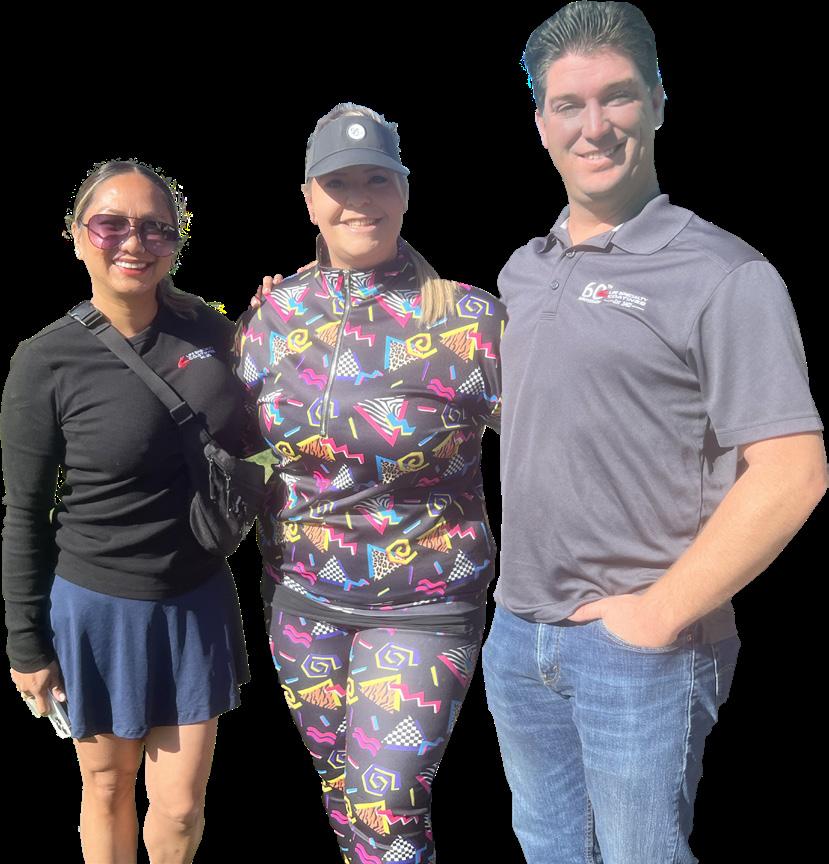
EDUCATION SPOTLIGHT
5 WAYS TO KEEP UP WITH DEMAND IN THE HOUSING MARKET By Dee Rowe, CCAM
BRINGING THE HARMONY: REALISTIC PRACTICES TO HELP GOVERN YOUR BOARDS By Andrew Hay, CAMEx, CCAM-ND.PM
PROACTIVE PLANNING FOR SPECIAL ASSESSMENTS By Jeff Farnsworth, CAMEx, CCAM-PM.ND and Trisha Conte, CCAM, CAFM
THE EXECUTIVE CORNER: THE EVOLUTION OF THE MANAGER’S ROLE By Adam Balkcom
JOIN A CACM COMMITTEE! By Lynette Bertrand, CACM
COMBATTING THIRD QUARTER BURNOUT By Scott Swinton, CCIP
THE RFP PROCESS: BEST PRACTICES AND WHEN TO SEEK EXPERT HELP FOR COMMUNITY PROJECTS By Kelly Zibell, CCAM
CLOSING OUT 2024 WITH OUR MEMBERS By Celeste Huecias, CACM
HOA INSURANCE: HOW TO MAKE SURE YOUR COMMUNITY ISN’T CANCELLED By Donna Vingo, CCIP
STORIES FROM THE TRENCHES By Mike Yarman, CCAM-LS.LM

This is it; the final stretch of the year is here and man what a year it has been. As we approach the end of 2024, it’s a great moment to pause, reflect and celebrate the achievements we have made. This year has been full of growth and change, when I personally reflect on both I feel immense gratitude for all that we have accomplished together.
One highlight is that we created our first-ever podcast, CACMCHAT: The HOA Life . Where we cover a wide range of HOA topics—from addressing challenging homeowners and board members to navigating the Corporate Transparency Act (and did I mention we have an episode dedicated to the CTA). We invite you to listen, engage, and share your questions or topic ideas with us. Your input matters, and we want this podcast to continue to be a reflection of your needs.
2024 also brought significant legislative updates, including changes to electronic voting, quorum requirements and maintenance laws, which will take effect in January 2025. For more information, be sure to check out our legislative resources page , which we will continue to update.
Some other significant changes we have made are the expansion of our staff, development of our new Education Center and some other exciting educational changes. (I can’t say too much more but I will at the upcoming Law Seminars so register today so you can hear all about it.)
As we close out the year, I also want to remind you to take time for yourself. It’s easy to get caught up in the year-end rush, but now is the time to reflect, recharge and enjoy the season. And what better way to relax than by reading this edition of Vision Magazine! I may be a little biased though.
Take this time to celebrate your hard work, enjoy the holidays and prepare for what’s ahead. Here’s to closing out the year strong and looking forward to a successful 2025!

Thomas Freeley, CAMEx, CCAM CEO of CACM



CM2 & Associates, Inc. announced the addition of Jilana Stewart to their team on October 15th. Jilana has been involved in the design-build sector early on in her career. She moved to Los Angeles permanently in 2011 and has established herself in the local architecture and design community. Jilana will work alongside the Vice President of Client Success and the Business Development Manager. “We are thrilled to have Jilana join our team,” said President Tad Black. “Her broad expertise and commitment to the industry make her an invaluable asset as we continue to expand and strengthen our presence in the Los Angeles area.”
CINC Systems (CINC) hosted their CINC Up User Conference on October 17th, with roughly 600 CID professionals in attendance. At the conference, CINC Chief Product Officer, Ashley Berenson, introduced three product advancements aimed to help mitigate tedious work. Touchless Accounting, Board Insight Center and the Communications Center, are powered by their AI platform Cephai. Ryan Davis CEO of CINC stated, “Our goal is to empower community managers with tools that make their work less tedious and more meaningful.”


Ryan Davis
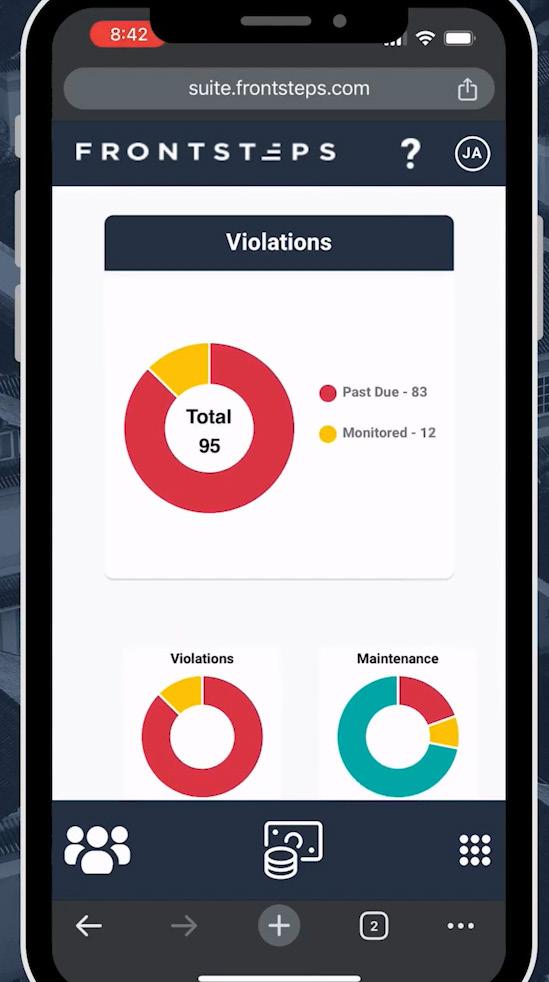

On October 7, FRONTSTEPS announced the launch of FRONTSTEPS Suite Manager. An all-in-one platform designed to simplify the management of HOAs, condo associations and co-ops. Key features of the software include: advanced back-office management, simplified workflow management, mobile-first, one click access and nextgen AI reporting and task automation. Matt DeWolf, CEO of FRONTSTEPS, stated, “Suite Manager represents a look into the future of community association management. With the help of our customers and other management companies, we designed this to meet the needs of the market 10 years from now.”

Heritage Commerce Corp, parent company of Heritage Bank of Commerce, announced the appointment of a new Chief Operating Officer on October 2. Thomas A. Sa is now the COO of both the company and the bank and will report directly to CEO Clay Jones. “His [Tom’s] personality and dedication to community business banking and demonstrated leadership ability position him well to lead our talented, motivated team,” said Jones.
Congratulations to Jennifer James, Esq., on her recent promotion to Partner at the Roseman Law firm. Roseman Law took to social media to announce the news. The promotion comes shortly after her hire. James joined the firm in September as the Managing Attorney of its Coachella Valley office. Roseman Law stated, “Jennifer’s exceptional leadership, dedication, and steadfast commitment to our clients and team have been truly inspiring. She exemplifies the values we hold deal and continues to make a lasting impact across the communities we serve.”

Congratulations are in order for Megan Wright, CCIP of Saarman Construction, Inc. Megan tied the knot on September 27th to her husband Andreas Fourakis. Their ceremony was held in the breathtaking Deer Park Villa in Fairfax, California. After they said ‘I Do’ they spent their honeymoon in Hawaii, venturing to Maui, Kauai and Oahu. Congratulations Megan and Andreas, wishing you both a life full of love ahead!

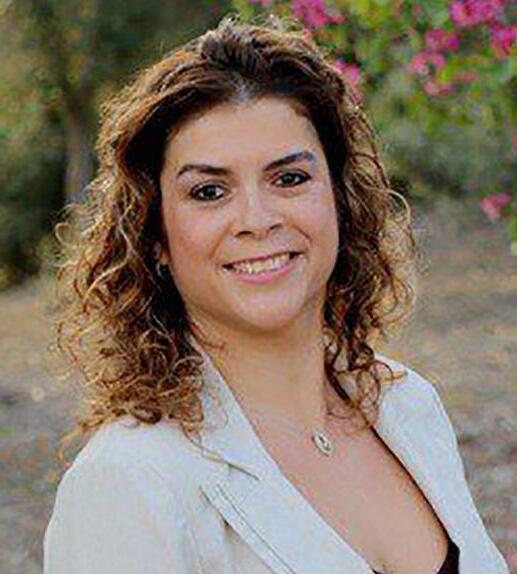
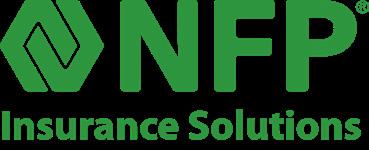
Congratulations to Claudia Sitta on her newest promotion to Regional Vice President for the North Country Market at Walters Management , a part of RealManage. Claudia joined Walters Management in 2023 and has “demonstrated exceptional leadership and dedication.” Walters Management continues on by saying Claudia established herself as a key figure in the organization early on. With over 20 years of experience in the industry, Claudia is ready to take on this new role. Congratulations Claudia, we can’t wait to see what is in store for you!

NFP, an Aon company and property and casualty broker, benefits consultant, wealth manager and retirement plan advisor, announced the acquisition of Scott Litman Insurance Agency. The announcement on September 5th, also included that Scott Litman, president of Scott Litman Insurance agency, will join NFP as a senior vice president. “With shared values and a commitment to advancing an already outstanding culture, we’re excited to help drive NFP’s growth in the habitual risk space and the greater Los Angeles area,” Litman said.
Compass Management Group, Inc. is now under a new umbrella. RowCal acquired Compass Management Group, Inc. recently. A statement regarding the acquisition has not yet been released but keep an eye out for one as this acquisition happened around September this year.


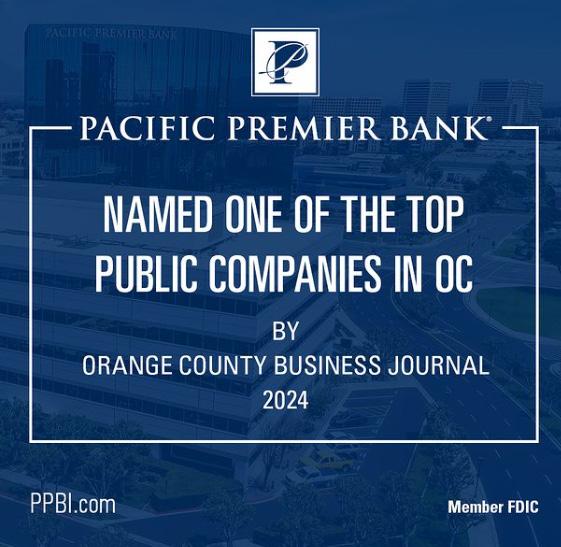
Pacific Premier Bank was recently named a top OC-based commercial bank by the Orange County Business Journal. The team took to social media to announce this achievement stating that they were honored by this recognition. “Thank you to our clients who entrust us to consistently provide top- tier relationship banking,” they stated. Congratulations Pacific Premier Bank!





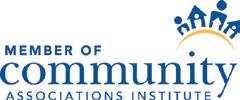

Vantaca announced a new partnership with Landing Rock Cash Management in October. They took to social media to make this announcement stating that, “This collaboration offers a secure way to grow reserves through high interest rates and up to $50 million in federal insurance coverage per account —plus, daily access to hundreds of certificates of deposit (CDs) nationwide.” With this announcement and collaboration Vantaca states that with Landing Rock Cash management they’re helping community managers protect and grow their cash reserves with ease.

gCongratulations are in order to Associa Northern California’s very own Tania Fino, CCAM. Tania welcomed baby Xavier into the world September 17th at 11:30 a.m. weighing eight pounds and ten ounces. He even celebrated his first Halloween dressing as a skeleton! Congratulations Tania and welcome to the world baby Xavier.
Antis Roofing and Waterproofing recently ended their roof giveaway they had for their 35th anniversary and stated that a winner would be announced in the beginning of November. They announced on social media in November that they have postponed the announcement of the winner due to the fact that they had an overwhelming response from the community. Talk about a great problem to have! Antis stated, “The submissions we received were truly inspiring and with so many impactful stories, our team needs a bit more time to carefully select the recipient.” We can’t wait to see the big reveal!
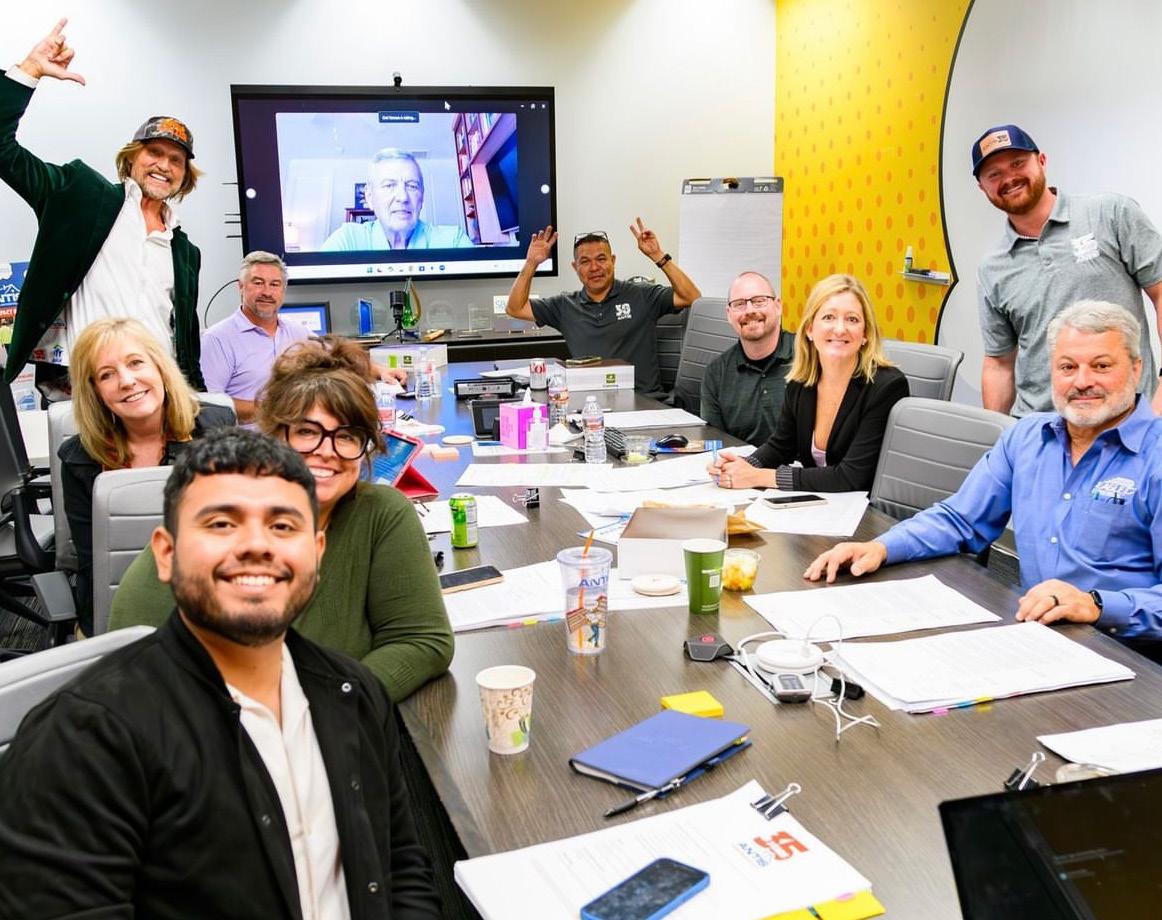
The Hignell Companies took to their blogs to celebrate the life of Gary Taylor and the profound impact he had on the company and in the HOA community. They stated that his passing leaves a profound void in not only the Hignell family but in the communities he served. Gary was a part of Hignell for 22 years and they state that, “He was not only a property manager but a consultant who provided valuable guidance to communities facing complex challenges.” Friends and colleagues all contributed to this blog post sharing the many conversations they have had with Gary and the memories they shared with him. Our sincerest condolences are with Gary’s family and The Hignell Companies at this time and we hope his legacy continues on in the industry.

Don’t see your news listed? Update us at communications@cacm.org
For their support of our 19th annual Halloween Bash, a benefit to support the Children’s Tumor Foundation.To date, together, we have raised over $2,000,000 for Neurofibromatosis research.
Sherwin Williams Paints
Collins Management
Jean Bates and Associates
Blackstone Construction Services (BCS)
Fenton Grant law firm
A Plus Tree
Let’s talk WINTER DISCOUNT Schedule projects from January – April, 2025 for the absolute lowest prices.
Black Diamond Roofing
American Asphalt
CM Squared
Altamont Construction
Angius and Terry LLP
Tarc Construction
Action Asphalt
United Site Services
United Rentals
Banuelos Insurance
Landcare Landscaping
BSM Construction
Recon 360
This time of year is known as the budget season, where we are working to finalize the association budgets during some challenging times with our boards that have 12/31 year ends. CACM presented an informative Fall Regional Forum throughout the state that gave some very useful feedback and best practices in having some of those tough conversations.
Some of the discussions included that you do not need to be out there all alone, but to engage your industry partners and their expertise to help with the education process for our boards and membership. The doubledigit assessment increases are occurring more often, as well as the special and the emergency assessment process. The key to success is to overcommunicate using multiple mediums and partnering with your experts.
The other item that I want to bring up is AB 2159, the Electronic Election bill, that I believe was a welcome legislative update. This process will aid with meeting quorums for board elections and governing document changes as has been shown in states that already use the process of electronic elections.

Remember, this bill has a lot of steps that must be taken prior to putting the process in place. We have many industry partners who handle elections already preparing for the process, but there are additional tasks that community managers must complete. These include changing of election rules. Once a change has taken place, you must have at least 90 days prior to the next election. There is also a requirement that the association deliver individual notice to each member that includes certain information about voting by electronic secret ballot, etc. Given these requirements, it’s most likely this process will not be useful for elections in the beginning of 2025, but it should be possible for those who have them in the second half of the year.
It has been a great and exciting year for our industry, and I am looking forward to seeing you all at the CACM Law Seminars early next year.
And as always remember to embrace the journey, trust the process and never stop learning!

CACM Board Chair
AS A MEMBER YOU HAVE ACCESS TO MANY RESOURCES ONLINE. HERE ARE JUST A FEW:

Hiring? Looking for your next career move? CACM’s Career Center is your go-to source.
The quick, easy and effective way to find just about any type of service provider for your community.






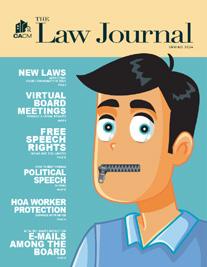

CACM publishes the Law Journal with legal insights on community management; Vision Magazine with industry trends and member news; and an annual Resource Guide with contact details for management leaders and service providers.
Search and connect with California’s leading management companies.

Jennifer Wada, Esq., an attorney and CACM’s Legislative Advocate provides legislative updates, plus check out our Bill Tracking Report.


Plus, sample management agreement, industry data, member logo, certification brochures, Ethics toolkit, Basics of Association Management toolkit, California Law toolkit, and more. Find exclusive tools by logging onto CACM.org.






“CACM “Education on the Ranch” event last Friday night was a memorable break amid the busy budget season. Attendees enjoyed interacting with animals, some tried their skills on the mechanical bull, and everyone enjoyed a delicious BBQ dinner. It was the perfect way for the Next Step Community Management and Homeowners Management Company, LLC teams to wrap up the week and relax alongside industry colleagues.
A big thank you to CACM team members Natasha Fierro, Diana, and Melissa Hurtado as well as to our sponsors—Heritage Bank of Commerce, Recon360, LLC, and JJ Water Heaters—and to fellow manager Jackie Beasley for making this event possible.”
—
Adriana DaSilva, CCAM, Next Step Community Management
“I had a wonderful experience supporting CACM and #volunteering at The Shea Center therapeutic Riding! It was inspiring to contribute to such a meaningful cause and to connect with some incredible women in the #realestate industry.
A big thank you to CAM Property Services for sponsoring this event. Giving back to the community is a core part of our values, and I’m grateful to be part of a company that shares this commitment. Here’s to more opportunities to make a positive impact together!
#CommunitySupport #GivingBack #CAMPropertyServices #nonprofit #volunteering #propertymanagers”
— Esteban Gonzalez, CAM Property Services

“Exciting News!
We’re thrilled to announce that StormWater Pros is now an official member of the California Association of Community Managers, CACM! As California’s top association for community management professionals, CACM provides exclusive training and certification to help us better serve HOA communities.
At StormWater Pros, we’re committed to providing exceptional service to our HOA clients,” said Brig Christensen, CEO. “Joining CACM strengthens our dedication to supporting California HOAs with specialized expertise and California-specific education.”
— StormWater Pros, LLC


“As I continue to reflect on last week’s Large Scale and High Rise Summit thanks to CACM, I am so appreciative of the continued opportunities for networking, professional development and knowledge sharing! It was such a wonderful event in the desert and was such an honor to speak on a Panel as Discussion Leaders alongside Matt D, Ober, ESQ. CCAL and Alfred Logan, CCAM -LS!! Thank you, thank you!! Feeling very grateful! #cacmstrong #professionalgrowth #networking”
— Christina French- Hokafonu, CAMEx, CCAM-LS.
HR.PM.ND.AA.LM, CAFM, Moraga Country Club Homeowner’s Association

“Thank you to CACM for the invite and for spotlighting such a crucial (and often misunderstood) budget element in the midst of budget season. While I’m partial to episode 8, I encourage you to catch up on the first 7 episodes of this great podcast launched recently. Subscribe to be sure you don’t miss out on future episodes as well!
Head to cacm.org/podcast #CACM
— Matthew Swain, Association Reserves

“It was so much fun showing up today as one of my favorite sitcom characters and getting happy at Happy Hour with all of you amazing people! CalPro Construction & Painting was happy to sponsor Happy Hour at the CACM Swing and Swag Golf Tournament in Moraga!”
— Anna Dizon, CCIP, CalPro Construction and Painting


“What an amazing day at the CACM Swing & Swag Golf Event! We had a fantastic time on the course, meeting community managers and industry professionals while sponsoring this great event. It’s always a pleasure to connect with our local community. A big thank you to CACM for organizing such a memorable event – we can’t wait to see everyone again next year!”
— Michael Blaszczyk, Metro Elevator
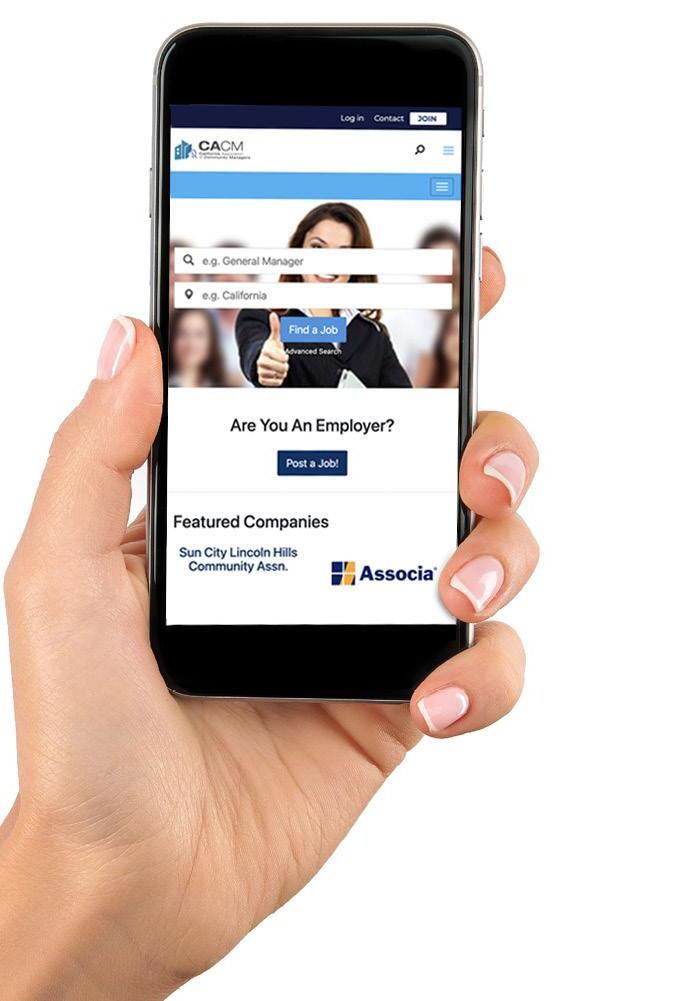
CACM is committed to our members’ professional success. Whether you are hiring or looking for the next industry-specific position, the Career Center is your “go-to” resource. Bookmark the Career Center and visit often.
Jobs can be posted for 30 or 60 days and are optimized for mobile and SEO. Premium and enhanced posts include increased
On top of posting your job opening, CACM delivers new job posts directly into email inboxes through its monthly Job Watch email and in its monthly MyCommunity member newsletter – both are sent to all of CACM’s members.
JOB WATCH MONTHLY EMAILS:
Average open rate: 33%;
Average click through rate: 7%
2
Please ensure you select your membership type before purchasing (we want to make sure you receive your discount!). You’ll also find there is a live chat feature on the page. Those individuals are ready to assist you with any questions you have in real time.
3
If, after this, you still need assistance, please feel free to reach out to help@ webscribble.com, and a representative from the company that supports CACM’s Career Center will further assist you in answering your questions and assisting you with your posting.

achieving professional excellence
It is with great pride that we recognize managers, and now industry partners, who have taken the next step in their professional career by pursuing advanced educational opportunities. Congratulations to our newest Certified Community Association Managers (CCAM), Certified Community Association Financial Manager (CAFM), California Certified Industry Partner (CCIP) and Specialty Certificate recipients for the period of August 15th, 2024 through October 24th, 2024.
Alicia Perez, CCIP
Char Tedrick, CCIP
Daniel Bassett, CCIP
Erin Blake, CCIP
Hailee Robertson, CCIP
Julia Gomes, CCIP
Tad Black, CCIP
Alyssa Smith, CCAM
Amanda Willis, CCAM
Andrew N. Marques, CCAM
Anthony M. Adams, CCAM
Cheri L. Cole, CCAM
Colette Marcelle, CCAM
Danielle A. Hurtado, CCAM
Danielle J. Hannigan, CCAM
David Danesh, CCAM
Debra S. King, CCAM
Edison Y. Guerraperez, CCAM
Erick Corcuera, CCAM
Estephany Vasquez, CCAM
Gil Rodriguez, CCAM
Jessica E. Sedgwick, CCAM
Jennifer Cirimele-Ross, CCAM
Jasmeen Sidhu, CCAM
John A. Cruz, CCAM
John A. Gonzalez, CCAM
John Fernandes, CCAM
Keldan R. Chick, CCAM
Kathleen F. Meyers, CCAM
Kira McCoy, CCAM
Kirstie N. Wright, CCAM
Kejala Garcia, CCAM
Laura A. Lochbaum, CCAM
Linda Sok, CCAM
Lindsy S. Aylward, CCAM
Lisa A. Malby, CCAM
Nescel M. Ilagan, CCAM
Oneita R. Lopez, CCAM
Paige E. Gregory, CCAM
Paige Welsh, CCAM
Patricia A. Burton, CCAM
Pietro C. Rizzuti, CCAM
Randall F. Viernes, CCAM
Robin Poole, CCAM
Rolanda Wilson, CCAM
Ron Rodrigues, CCAM
Sara Borek, CCAM
Spencer Gilbert, CCAM
Stephanie Fitivale, CCAM
Stephanie Montano, CCAM
Stephanie N. Espinosa, CCAM
Susan B. Nelson, CCAM
Tennie E. McMahon, CCAM
Tiffany A. Capdeville, CCAM
Ubaiz Shaikh, CCAM
Valerie Vanhorn, CCAM
Zoe R. Wright, CCAM
Brandon Park, CCAM, CAFM
ACTIVE ADULT
Al Cui, CAMEx, CCAM-HR.ND.AA
Andrea Pulizzi, CCAM-PM.AA, CAFM
Joseph Powell, CCAM-LS.AA.CI.LM
COMMERCIAL AND INDUSTRIAL CID
Joseph Powell, CCAM-LS.AA.CI.LM
LARGE SCALE
Cody E. House, CCAM-ND.LS
Nicole Mulvany, CCAM-PM.ND.LS. AA.CI
Paul A. Rallonza, CCAM-LS
Tony Khani, CCAM-PM.LS.ND.AA
LIFESTYLE MANAGEMENT
Joseph Powell, CCAM-LS.AA.CI.LM
Christina French-Hokafonu, CAMEx, CCAM-LS.HR.PM.ND.AA.LM, CAFM
Isaiah L. Berry, CCAM-ND
Loni Peterson, CCAM-LS.ND.PM
Tony Khani, CCAM-PM.LS.ND.AA
Gretchen L. Redewill, CCAM-PM
Loni Peterson, CCAM-LS.ND.PM
Melissa A. Hajostek, CAMEx, CCAM-PM.LS.ND.AA
Sajid Shabber, CCAM-HR.LS.ND.PM.AA
Susan Janowicz, CCAM-LS.AA
Tony Khani, CCAM-PM.LS.ND.AA
Tyler J. Matheis, CAMEx, CCAM-PM.LM.AA
As we close out 2024, we want to take a moment to look back at all of the changes and developments made within our Education Department that we hope has helped enhance the learning experience for all of our members. We are committed to continuously improving and innovating to meet the evolving needs of the industry. Here’s a glimpse of what we’ve accomplished so far and what you can look forward to in the coming year.
This year we developed a new learning management system, also known as the Education Center. This is now your one-stop-shop for educational resources including things like course materials, event details and registration, class reminders and more. If you have not had the chance to familiarize yourself with the Education Center, make sure to do so before the year ends and feel free to check out our last issue for a full rundown of first steps.

To better serve our growing community, we’ve expanded our Education Team. We hope with this expansion, we can continue to elevate your education and help you with whatever goals you have set for yourself. So please help us welcome Natalie Dailey as the Education & Credentialing Administrator.
Born and raised in Orange County she attended Concordia University, Irvine on a speech and debate scholarship. She loves all things Disney and traveling. If you get the pleasure to meet Natalie, make sure to say hello!
Expansion of our education department also comes with the development of new roles. Recently we’ve created the position of Education Events Coordinator. This new role will focus on curating and managing our educational forums, seminars, workshops and networking opportunities. We are excited to see how this role will elevate our educational events and can’t wait for you all to experience them. A special congratulations to Korinna Peterson, who will be taking on this role.

Earlier we mentioned that if you haven’t familiarized yourself with the Education Center yet, you probably should do so. This is because in 2025, we will be fully streamlined and transitioned into this new center. So, if you haven’t utilized this resource yet and you plan on taking classes next year, be sure to log in today.
How could we not mention them! If you haven’t signed up for a Law Seminar Expo near you, now is the time. This is easily our most anticipated event (along with largest). This expo is all about using the power of the past and becoming a force in the future. You will get the opportunity to hear from a variety of different panelists and speakers, but make sure to hear from our keynote speaker, Jessica Pettitt. Jess will help you navigate the new and unfamiliar terrain of pattern disruption and show you how any sincere and honest response can lead to lasting change. Don’t miss it!

All class reminders and important updates will be sent directly through our Education Center and you will access everything there. Familiarize yourself with it because it is here to stay! This new feature will ensure that you never miss an important deadline or educational opportunity again.
You read that right, in 2025 we will be making updates to our current courses. We will also start developing ondemand courses and new courses all together. So keep an eye out for these changes in the coming year.

We are rolling out 2025 Law Seminars with a track designed specifically for management company owners, executive teams and leadership teams to discuss timely topics suggested by leaders. Topics include transitions, management company success and future of HOA management.
We’re
We’re excited to share that a special announcement will be made at our 2025 Law Seminars. Stay tuned for this important update — it’s something you won’t want to miss!
We’re excited about these new changes and look forward to continuing to support your educational journey in the coming year. We can’t wait to see you take full advantage of everything 2025 has to offer.

By Jennifer Wada, Esq.
Since the Legislature has wrapped up its 2024 session, all eyes were then directed to the November general election. Comparing the two, the presidential race rightfully garnered more attention, however, the significance of state legislative races should not be overlooked. The presidential election and accompanying national issues, such as health care, housing and the economy, will drive higher voter turnout. This means that down-ballot races will certainly get a boost.
In the California Assembly, there are 24 open seats where an incumbent is not running either due to term limits or incumbents not seeking re-election. Some of them are running for state Senate, a statewide position, or Congress. This means that we will see 24 new legislators elected. Additionally, there are some tight races where incumbents are facing strong challenges. Democrats currently control 62 of the 80 Assembly seats. The Democratic Party is focused on maintaining and expanding its supermajority, which is especially important for them given that there
are more entrenched moderate and progressive factions within the party. This makes it more difficult to advance complex and controversial legislation. Republicans are fighting to gain a few seats and the typical battle lines of business versus labor continue.
In the California Senate, there are 11 open seats as a result of term limits. The Senate has 31 Democrats and nine Republicans, so while it is a strong majority, losing just four seats could cost them the supermajority. A two-thirds supermajority is necessary for passing tax increases and urgency measures without Republican support. In a surprising turn of events, one Democratic Senator changed parties to become a Republican late in the legislative year.
There are a large number of competitive legislative races due to redistricting and changing district dynamics. And because California has a “top two” primary, two members of the same party often compete against each other in the general election. All of this is to say that the California Legislature will
look different in 2025 and there will be many new faces to educate about the importance of community managers.
In the upcoming legislative session, we anticipate more on the ongoing insurance crisis and various ideas about solutions. This last year, we saw a number of attempts to address this issue with many of them focusing on expanding access to the FAIR Plan. Insurance Commissioner Lara is in the process of enacting regulations to expand commercial coverage up to $20 million per building, with a total aggregate of $100 million per location. Currently, the FAIR Plan only authorizes up to $20 million per location.
As for other issues on the horizon, there will undoubtedly be a renewed focus on housing affordability and homelessness, especially in the wake of the national spotlight on the issue. And of course, we anticipate a good number of CID specific bills. We could see legislation
that we defeated this year come back, such as legislation to shift construction defect liability back onto associations.
Alternatively, we could see attempts by opposition groups to undo parts of the good legislation that was passed this year regarding electronic voting.
One significant bill this session was SB 900 (Umberg). This bill establishes that the association is responsible for repairs and replacements to restore interruptions to gas, water, and heat services that begin in the common area, unless the utility service that failed is required to be maintained, repaired, or replaced by a public, private or other utility service provider. The board must commence the process of making repairs and replacements within 14 days and the bill expands the board’s ability to obtain a loan and use emergency assessments under certain circumstances. The bill also adds gas, water and electrical service components to the visual inspections
that must be done as part of reserve studies. Given the breadth of complexity of this bill, we can envision the need for potential cleanup to ensure proper implementation. Other possible topics for legislation include reserves and issues related to aging infrastructure.
We will know more as we approach the new year. The Legislature will be different, but with change comes opportunity, and we look forward to maximizing it in 2025.
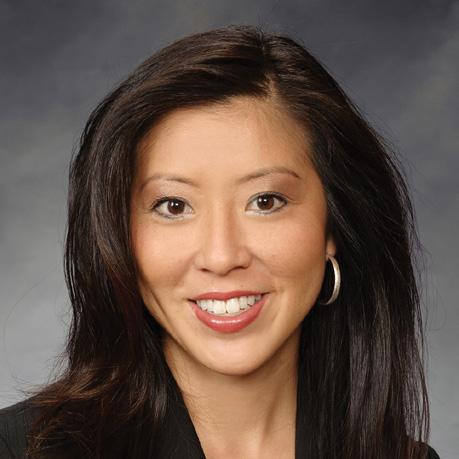









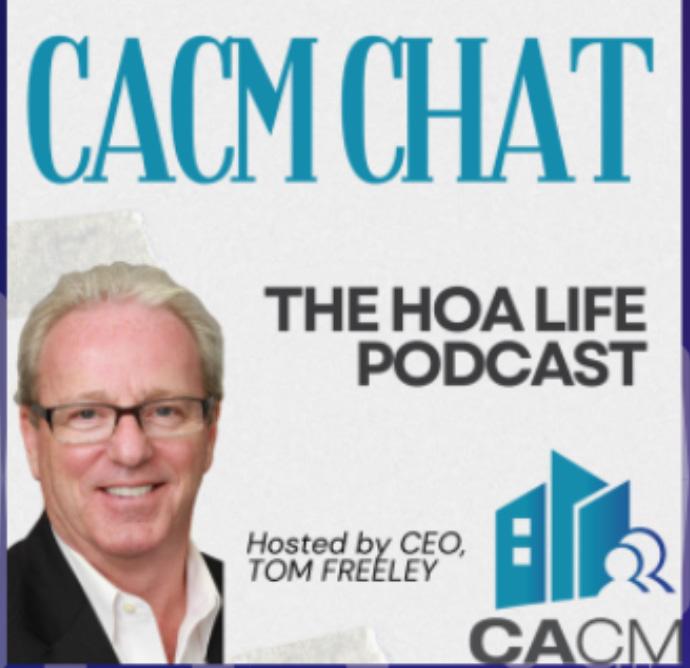

If you haven’t heard the good news, we have joined the world of podcasting! Our first podcast, CACMCHAT: The HOA Life, launched September 10th and we are excited as ever.
This weekly podcast will be geared toward anyone interested or involved in community associations. It aims to bring stories, trends and best practices from professionals who work in the California community association management industry. No topic is off limits.
When you tune in, you can expect to hear discussions on a wide range of topics. Things such as reducing burnout, budgeting, reserve management tips, dealing with conflicting board members and more. Our host and CEO, Tom Freeley, states that one of the main goals of the new show is to elevate the industry.
“One of the issues that we want to address is the reality behind community association management and what a manager actually goes through on a day-to-day basis.”
Episodes will also cover the ever-changing laws in the HOA Industry, new technology and the evolving workforce. Listeners can expect guests on different episodes to help weigh in and navigate these topics.

You can tune in and stream CACMCHAT: The HOA Life on Spotify and Apple Podcasts. You can subscribe to the podcast directly from our website , where you can also submit questions and topics for consideration at podcast@cacm.org. If you haven’t yet, be sure to listen to our first few episodes and subscribe today!


maintaining high standards
CACM members further their success in the industry and benefit by partnering with colleagues to share new ideas and best practices. Please join us in welcoming these new members from the third quarter of 2024 (July 1 – September 30.)
MANAGER ProPlus
Jasmine Carrillo
Malik Jones
Alicia Vicario
MANAGER Pro
Yessenia Aceves
Nicholas Adams
Cynthia Arellano
Robin Baer
Zina Bakoo
Kelly Berto
Arlene Bunch
Nathalie Camara
Taylor Casey Ramos
Carina Castillo
Luis Chanpheareak
Susan Cook
Kelly Davidson
Leslie Deiss
Sirron Drummond
Thomas Eby
Aaron Evans
Kejala Garcia, CCAM
Dillon Graber
Edison Guerraperez, CCAM
Jason Hajduk-Dorworth
Christopher Huang
Danielle Hurtado, CCAM
Paulina Kawaguchi
Megan Kingery
Monica Licea
Amissa Linares
Laura Lochbaum, CCAM
Lorena Maldonado-Rivas
Meri Maletich
Geraldine Manzo
Edgar Martinez
Jean Martinez
Kayla McCormick, CCAM
Kira McCoy, CCAM
Tennie McMahon, CCAM
Melanie Merlin-Moats
Samuel Navarro
Cindy Nguyen
Alissa Nitedthunyakij
Alana Pechon
Michael Peckenpaugh
Jason Perez
Julie Phan
Robin Poole, CCAM
James Pryor
Traci Ringen
Elizabeth Sanchez Pineda
Tom Sebring
Linda Sok, CCAM
Stuart Sutherland
Jordan Tuituku
Maria Valle
Michelle Vlasich
Deana Walk
Christine Wedell
Amanda Willis,CCAM
Melody Wisdom
BUSINESS Plus
Smith Ranch Homes HOA
San Rafael I (415) 492-4947 smithranchhomes.org
Strata Property Solutions, Inc.
Mission Viejo I (949) 496-3210 stratapropertysolutions.com

By Dee Rowe, CCAM
The California housing market is witnessing a significant shift towards common interest developments, commonly known as homeowner associations (HOAs). This trend raises important questions for managers and management company executives. Are HOAs becoming the predominant form of new housing development in California? What are the implications for the demand for community managers and management services? We, as industry professionals, need to pay close attention to this matter of concern.
This article aims to provide a brief overview of the history and future of California’s HOA boom and provides five tips for managers and management company executives.
Homeowner associations (HOAs), also known as common interest developments (CIDs), have a history that dates back to post-World War II. Here is a brief overview:
The concept of HOAs began to take shape in the late 1940s in densely populated places like Chicago and New York. Returning veterans faced a housing shortage, prompting developers like Bill Levitt to create affordable housing communities like Levittown in New York. These communities had rules and regulations to maintain order and standards, setting a precedent for modern HOAs.
The Federal Highway Act of 1956 and the growth of suburban areas in the 1960s led to more planned communities. Developers and municipalities saw the benefits of privatizing infrastructure and creating shared spaces, which required organized management. According to Nicolaides, B., & Wiese, A. (2017, April 26).
Suburbanization in the United States after 1945. Oxford Research Encyclopedia of American History, “Mass migration to suburban areas was a defining feature of American life after 1945. Before World War II, just 13% of Americans lived in suburbs. By 2010, however, suburbia was home to more than half of the US population.
The Federal Housing Administration (FHA) began approving mortgage insurance for homes in HOAs in 1963. By 1967, every state had adopted some sort of act allowing for common-interest developments. The Fair Housing Act of 1968 and other anti-discriminatory policies further encouraged the development of planned communities.
These factors contributed to the increasing frequency of HOA developments in modern housing projects.
HOAs provide a structured way to manage and maintain communities, ensuring long-term viability. They collect assessments that pay for crucial maintenance and repairs, enforce rules, and uphold property values.
By establishing and enforcing community standards, HOAs help maintain a certain aesthetic and quality of life, which can attract potential buyers. This, in turn, increases the value of all homes within the community.
HOAs allow for the creation of shared spaces like parks and pools, enabling developers to build more homes on smaller lots while offering desirable amenities. Cities and municipalities generally approve, as they do not have to build, manage and maintain the amenities.
There is a growing demand for managed communities that offer a sense of security, community and well-maintained environments. This makes HOAs a popular choice for new developments.
In 1970, less than 1% of the population lived in a common interest development.
According to recent data published in an article on HOA Statistics on iPropertyManagement.com, approximately 82.4% of new homes sold in 2023
were in HOA communities. Forty million US households (53% of homeowners) live in HOA communities.
In California, the state with the largest percentage of HOA members, 65% of new homes are in a homeowners association. In CACM’s 2023 Media Kit, we find that as of 2023, there were over 55,350 HOAs comprised of over 5 million homes.
Experts project that nationally, we can expect to add 3,000 to 4,000 new condominium and homeowner associations annually over the next five years, which translates to an estimated 15,000 to 20,000 new associations
Each new association can vary significantly, so assuming an average of 100 units per association, this means the industry could manage an additional 1.5 to 2 million homes/units over the next five years. This substantial growth underscores why HOA management companies and managers must streamline and scale their operations effectively to meet the rising demand.
With the increasing number of new homes constructed belonging to HOAs, management companies need to take several steps to prepare for the influx of new clients:
1. EXPAND STAFFING AND TRAINING
Hiring additional staff and providing comprehensive training is crucial. This includes legal compliance, customer service and community management software training.
2. INVEST IN TECHNOLOGY TO STREAMLINE OPERATIONS
Implementing advanced management, banking and collections software can streamline operations, improve communication with residents and enhance overall efficiency. Check out CACM’s Industry Partner Directory for options.
3. ENHANCE COMMUNICATION
Establishing clear communication channels with HOA boards and residents helps manage expectations and resolve issues promptly. Managers and the companies they work for must embrace additional ways to communicate with residents besides US mail, such as social media platforms and web app push notifications.
4. LEGAL AND REGULATORY COMPLIANCE
Staying updated with local, state, and federal regulations is essential. Attending CACM’s educational seminars and annual legal updates is one way to stay informed about evolving laws and best practices.
5. COMMUNITY ENGAGEMENT
Building a sense of community through events and activities can foster a positive environment, improve resident satisfaction and help ease the inherent tension between the rugged individualism of the American spirit and communal living.


Dee Rowe,
has more than 12 years of experience managing CIDs in the San Diego region.
By Andrew Hay, CAMEx, CCAM-ND.PM
As community association managers we can sometimes forget the important role that homeowners’ associations, and more importantly HOA board members, play in maintaining property values, establishing community standards and creating a cohesive environment for residents. Board members often face significant challenges in making timely decisions, speaking with a unified voice and minimizing conflicts among members. As community association managers, we must provide our clients with all the tools necessary to help them navigate these challenges and operate efficiently and harmoniously.
OUR JOB IS NOT TO MAKE EVERYONE HAPPY; IT IS TO HELP OTHERS DEVELOP A MUTUAL UNDERSTANDING OF EACH OTHER’S VIEWPOINTS AND OF THE REALITY OF WHAT THE HOA IS REQUIRED TO DO.
Even though making decisions quickly and effectively is crucial for HOA boards to fulfill their responsibilities, many struggle with a failure to launch with even the simplest of decisions. When boards delay making decisions, your job as a community association manager becomes exponentially more difficult leading to dissatisfied members, financial losses or worse.
Successful managers aid the board in their decision-making processes by providing expert guidance and information. This can include drawing on experience from other communities you manage and through shared experiences with the vendors and trade organizations that serve this industry.
It is also critical that you provide complete, comprehensive board packets so that the board can feel more confident in the decisions they are making. This can include specific resolution options for the board, so they can simply pick which option they want to move forward with. Running a corporation requires decisive action and often the volunteers who simply want to serve their communities forget this. It is our job to get our clients to make decisions. Just like it is their job to spend money prudently.
Another way to avoid inefficiency at board meetings is to make sure you have a streamlined agenda. This means you don’t simply put general discussion topics that have no intended direction on the agenda. If you have a request for an agenda item from a board member, ask them for specific detail on what they want discussed and potential outcomes they want the board to consider reaching.
A best practice is to have the board create a policy that no board members can request an agenda item unless it is accompanied by specific information and/or an intended outcome. This, combined with a complete board packet (sent out at least a week in advance) will significantly speed up your board meetings and ensure that everyone is clear on decisions made at meetings.

So now that the meeting is over, what next? First, make sure you provide the board with a copy of the minutes from the meeting within a few days. This way everything decided upon is fresh in everyone’s memory and inaccuracies can be corrected before everyone forgets the details. The minutes should be concise, including just the decisions the board made and not have a large amount of dialogue or discussion that took place. Think of minutes as bullet points on a timeline. Capture what is critical, don’t get caught up in long drawn-out dialogue. Providing the board with the minutes early can help promote them to speak with a unified voice.
Our clients need to be reminded often that as a board they are not individuals and that regardless of whether they agreed with every decision made, they are responsible for those decisions and should not create a dissenting voice to the members once a decision is made. The easiest way to achieve this is for board members to direct all vendor and owner inquiries to management. Encourage them not to provide information to members directly but rather to get information from you and your company. This will ensure consistency of message and create value for both the board and the members of the HOA.
With an efficient board and consistent communication, you will find that managing your communities is easier. That said, you are still working with human beings and because of this conflict is inevitable. Our job is not to make everyone happy; it is to help others develop a mutual understanding of each other’s viewpoints and of the reality of what the HOA is required to do.
The best managers remain impartial during board discussions while also asserting themselves if a board member is suggesting something unequitable or illegal. Redirecting circular communications and reminding board members and owners that the meeting is a business meeting and that everyone should conduct themselves as such will help reduce conflict.
I have seen too many board discussions go sideways simply because the board felt the need to let everyone in the room have a chance to voice an opinion even though the board knew the decision they were going to make within the first five minutes. Remind your board members before, during and after the meeting that consensus is not the goal, a majority approval of the board is.
A little healthy conflict amongst the board members can show the owners that they are considering all sides, but when boards allow it to go beyond themselves, it is a recipe for major conflict and inability to get things done.
The role of a community association manager in HOA board governance goes beyond administrative tasks. Managers are instrumental in helping boards make quicker decisions, present a unified voice and manage conflicts effectively. By leveraging their expertise in communication, facilitation and conflict resolution, managers empower boards to operate smoothly and deliver better outcomes for the community. When boards partner closely with their management professionals, they position themselves to govern more effectively and create a thriving community that benefits everyone involved.
REMIND YOUR BOARD MEMBERS BEFORE, DURING AND AFTER THE MEETING THAT CONSENSUS IS NOT THE GOAL , A MAJORITY APPROVAL OF THE BOARD IS.
a

Inc.
FEBRUARY 5-7, 2025
OAKLAND MARRIOTT CITY CENTER & CONVENTION CENTER
ROOM RATE: $207
BOOK YOUR ROOM
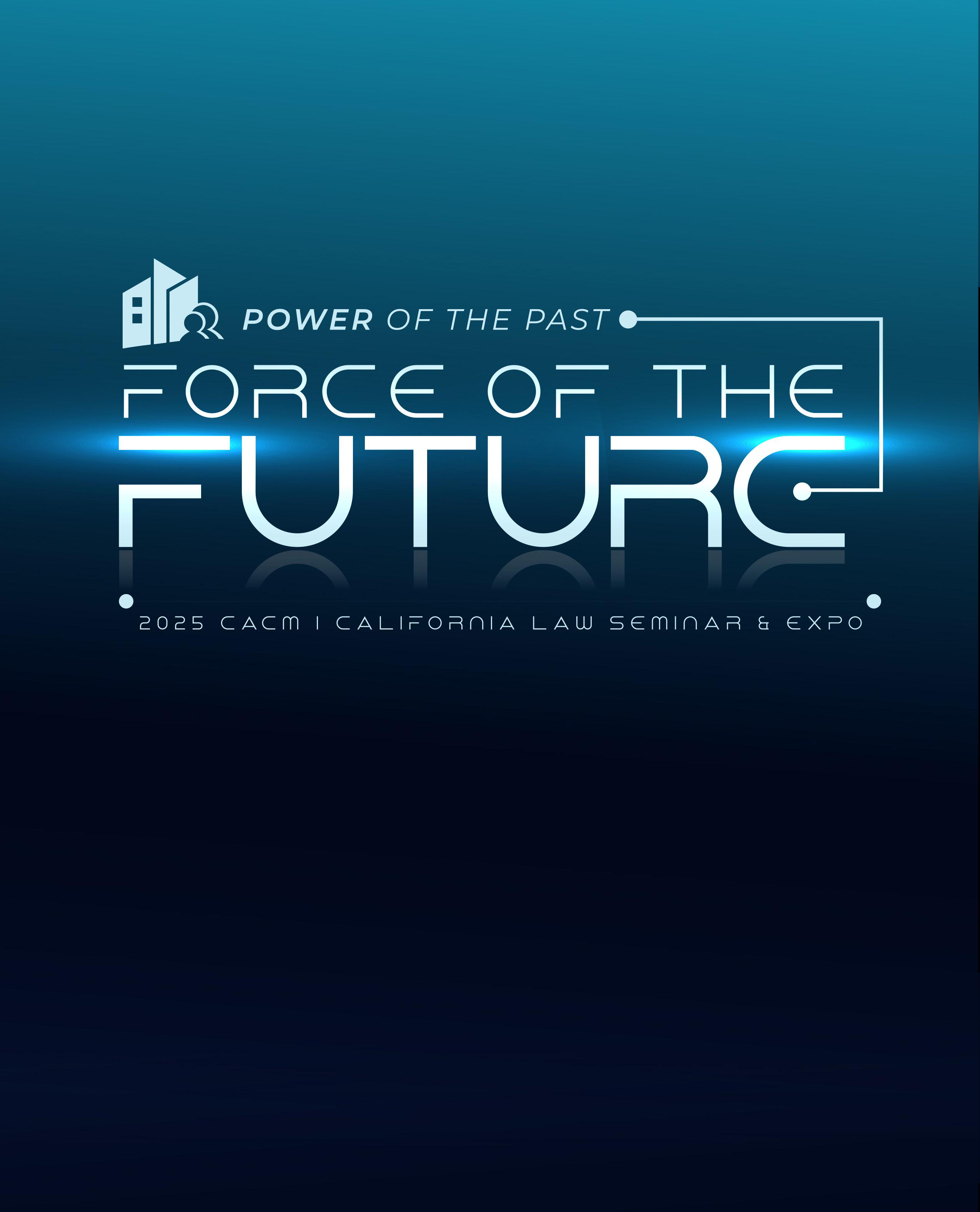
MARCH 12-14, 2025
DISNEYLAND
HOTEL & CONVENTION CENTER
ROOM RATE: $349
BOOK YOUR ROOM
The future is here. How does the community management industry prepare for what’s next? By harnessing our past experiences and knowledge while analyzing current and future trends. Whether that’s adoption of artificial intelligence, instituting new business processes, or learning new legal insights and perspectives, CACM will provide the tools to help you navigate our rapidly changing world. Join us at this two-day conference to unpack the best ideas for tomorrow.
The strategies you learn at the CACM Law Seminar will enhance your professional skills and help you to successfully guide your communities.
& Mentors If catching up with colleagues and mentors is on your high list of priorities, then you can look forward to the largest gathering of California community management professionals at the Law Seminar. Expand your professional network and build powerful relationships.



CACM’s Education team has pulled together California’s best and brightest to lead this year’s educational sessions. Although content is relevant for the entire state of California, these experts will focus their teachings on either the Northern California or Southern California regions making the conversations unique to the area in which you serve communities.
Earn up to 12 CEUs*
Attend the Law Seminar & Expo and receive 8 CEUs for recertification. Take one of our two Ethics courses being offered the day before the Law Seminars to earn an additional 4 CEUs.
Industry partners will showcase a memorable period from our past or their vision for the future. Upon entering the trade show floor, you will be transported to another place and time as you visit the various booths. CACM is proud to continue our leadership role hosting the largest Expo for the California community management industry that features a vast array of exhibits, all while networking with the “who’s who” of the industry.

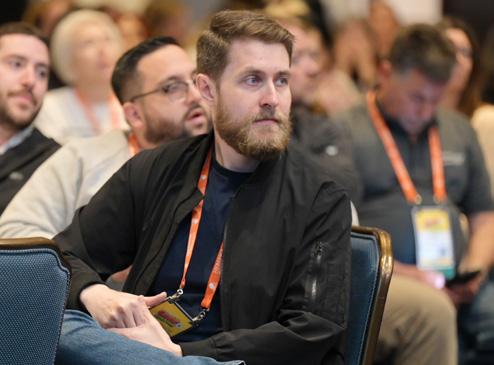
Interested in sponsoring the largest event in the California community management industry? Download our opportunities and email marketing@cacm.org.


Things to keep in mind when you are dealing with your next special assessment.
Unanticipated expenses such as replacing electrical panels, changes in building codes, utility and insurance premium increases and maintenance projects coming much sooner than expected have presented many of our associations with unprecedented funding challenges. As we put the budget season behind us, we may be left with some residual work to consider depending on whether our boards heeded the advice of management and their reserve study analysts. Even with the best financial plan, a special assessment may be needed to help fund shortfalls due to escalating prices in our current economic climate.
It is important to consider all angles when a client is facing a shortfall. Is this a cash flow problem associated with operating expenses exceeding the revenue gained? Is borrowing from reserves a viable option? Or is the need due to a large project where use of reserve funds would leave the association vulnerable for other known expenses? Would a midyear budget increase be a solution for the board to consider, or would recommending a special assessment be more appropriate?
As community association managers, we must brainstorm as much as possible when reviewing our clients’ financial challenges. Utilizing experts within and outside of your company structure can help you strategize effectively. If a special assessment seems like the right path for your client, be sure to consider all that is involved as you walk the board through this process.
Here are a few concepts to consider:
How soon does the association need these funds? Is the special assessment able to be phased with the project or are the funds needed more immediately? Can the association offer payment options other than a lump sum? What fees may be associated with this? Executing a special assessment properly can take four to five months. Once approved, the board must also account for 30 days’ notice to the members before the first payment is due.
Consider additional expenses for extra management, legal assistance and administrative fees for extra accounting, reporting, tracking, billing and processing. Factor these and the time involved into your plan.
If a loan is needed to fund the project, the special assessment will be part of the required repayment plan. Organize the special assessment first, so you can present the banks with a solid plan for repayment. Loans can take months to plan and put in place. They may include origination fees, interest payments and other administrative fees that will need to be considered. Ensure that you have a record of all potential fees associated with your funding plan to include in your overall cost analysis.
Consider surveying the members to see if a lump sum or split payment would be preferable. In the end, the
By Jeff Farnsworth, CAMEx, CCAM-PM.ND and Trisha Conte, CCAM, CAFM
board will need to meet the requirements of the loan, but also minimize the potential for delinquent payments.
If the association is using a loan, be sure to understand the reporting needs of the financial institution providing the loan. AIA forms (The American Institute of Architects) may be required to be filled out and submitted in relation to completion of work and conditional or unconditional lien releases to authorize loan draws. Vendors may need to be approved prior to loan approval and monitored along the way. Documentation will need to be gathered and provided such as two to three years of tax returns and CPA year-end financial statements, proof of low assessment delinquencies and maintenance of this throughout the term of the loan, proof of special assessment approval, current financials and regular quarterly reporting on association financial health.
Those are just some of the requirements that may be needed and should be considered. The loan amount offered may not be as much as the association needs, or the interest rate or terms of repayment may be different than anticipated. All of this should be forecasted and adjusted so the board can have a clear idea of everything that is and will be involved when shaping their plan.
Clearly define the project that requires funding and make sure to have all possible costs accounted for. Organize associated documentation and


communicate effectively with any vendors involved to ensure apple to apple proposals. Is the board using a project manager? What are their fees? Will the project affect insurance premiums? Are there setup or mobilization fees? What is the budget for change orders or other contingencies? The last thing you want to do is fall short and ask for another special assessment, so use your experts to obtain as much information as possible for a full scope of work to ensure the board is asking for enough to successfully complete the project. Often, a good project manager can assist in organizing this data to present to the board.
Determine whether a membership vote is required for the association to pursue the recommended strategy. Since most large projects will exceed the 5% threshold and emergency special assessments have stringent requirements, it is likely that a vote will be needed to pass a special assessment. In order to gain membership buy in, consider the costs associated with town hall meetings, vendor presentations, extra management and facility rentals, etc. Transparency and education will go a long way in obtaining the approval needed to move forward but will need to be part of the overall financial plan.
Depending on whether or not you have an in-house accounting team, there may be different fees and considerations associated with providing oversight or extra reporting for a special assessment. Repayment plans will need to be effectively tracked, and this may

Projects and expenses will ebb and flow, you will never be spot on, but it is better to end up with extra funds that can be used for funding additional projects than to have to stick the association’s hand out and ask for more.
entail setting up special processes to account for the variables in payment timing.
The board may also want to set up separate accounts or line items to track spending and keep the project separate from the day-to-day funds necessary to keep the association running. Custom reporting may be needed or requested. Customer service needs may escalate. These types of projects can impact a management company’s workflow significantly, especially if not planned for. Your team members may be able to provide valuable feedback and help refine the board’s expectations. Remember to discuss the impact of large projects with everyone who may be involved in contributing to its success.
If we do our due diligence by proactively educating our boards on the financial health of the association, we can help them anticipate and tackle challenges like having to levy a special assessment. Remember you are not in this alone! You can reach out to your colleagues, coworkers and vendors in the field who may be able to help. Try to play devil’s advocate and consider a conservative plan that accounts for cushion room but can also accurately justify the funds needed.
Projects and expenses will ebb and flow, you will never be spot on, but it is better to end up with extra funds that can be used for funding additional projects than to have to stick the association’s hand out and ask for more.

Jeff Farnsworth, CAMEx, CCAM-PM.ND, is the CEO of Steward Property Services, Inc., and has more than 15 years of experience providing management services in Northern California.

By Adam Balkcom
The biggest problem we continually hear from our CAM Leadership member companies is the challenges they have keeping their companies fully staffed with quality managers.
In today’s fast-paced world of community management, it’s easy to burn out managers by giving them too much to handle without the proper support. If you want to recruit and retain good managers, it starts with clearly defining their role and giving them the tools and resources they need to thrive. But how do you do that when the manager’s role has changed so much in the last couple of decades, and when every company seems to do things a little differently?
We took on a research project to talk to the industry’s top experts about the past, present and future of a community manager’s role.
What we found is that depending on your company and the communities you manage; the responsibilities of a community manager can vary quite a bit. Some companies are embracing new technology to redefine what a manager does, while others are sticking closer to the traditional model. No matter where your company falls on that spectrum, understanding how the role has changed and where it is going will help you shape it for future success.
The All-in-One Manager
Not too long ago, community managers were expected to do just about everything— handling board communications, day-to-day operations and more. They didn’t have to deal with as many inbound emails or phone calls, and boards tended to be less involved. Managers had to be well-rounded, handling almost every aspect of the community themselves.
Today, the manager’s role is much more complicated, especially after the changes brought on by COVID-19. With more people working from home, homeowners are paying closer attention to what’s going on in their communities, which means managers are getting more emails, more complaints and facing higher expectations. And many of those homeowners aren’t as polite as they used to be.
At the same time, the costs of management are going up, with payroll being one of the biggest expenses for most companies. But many communities aren’t willing to increase their fees to cover rising manager salaries, leading to a lot of tension. As a result, companies are finding ways to shift some of the workload off managers and onto technology or less expensive resources. Some trends we’re seeing include:
• Splitting the manager’s responsibilities, with customer service teams—often based overseas—handling homeowner requests.
• Using virtual assistants to help managers with administrative work.
• Having inspections done by specialists or third-party services.
• Diversifying revenue streams to stay competitive.
Managers as Advisors
In the near future, we’re likely to see managers stepping into more of a relationship manager and project coordinator role. They will become trusted advisors to boards, focusing on managing larger, more complex projects while delegating day-to-day tasks to other team members.
Technology, especially AI, will take on more of the repetitive tasks like drafting emails or taking meeting minutes. This will give managers more time to focus on strategy and maintaining strong relationships with board members. We’re also seeing an increase in self-service options for homeowners and board members, thanks to AI-powered platforms like Stan AI and CINC’s Cephi. As these tools get better, some communities might start relying more on technology and less on human managers.
Strategic or Sales-Focused Managers? In the more distant future, the role of the manager could change even more. Some communities might not be able to afford full-time managers anymore and could instead use technology for day-to-day operations, with part-time support from managers for specific tasks.
Managers who remain in the field will take on more creative and strategic roles. They’ll help communities define and achieve their goals while being the boots on the ground when needed. There’s also some debate about how many communities a manager can realistically handle. Some believe managers will be able to oversee as many as 25 communities, thanks to virtual meetings and AI tools. Others think managers will always be limited by the number of board meetings and board relationships they need to maintain.
This is a new column for Vision Magazine included in every issue. It is written by staff at CAM Leadership Institute, an organization that focuses on community management company owner and executive leadership development. CAM Leadership Institute hosts mastermind groups attended by more than 100 management companies from across the country every month, which gives them unique insight into the industry. In each edition, the staff at CAM Leadership Institute will provide a column specific to management company owners and executive leadership teams.
There’s also the possibility that the manager’s role could shift toward sales. In this model, managers would connect communities with vendors and services, helping homeowners leverage their collective buying power. This could allow managers to manage fewer communities while increasing their income through partnerships and commissions.
What we see is that the companies that are embracing technology and fostering a mindset of continuous improvement are already stepping into the future. Companies that invest in AI and self-service tools are not only improving the services they offer but also lowering costs and keeping their top managers engaged and motivated.
By staying ahead of the curve, you’ll set your managers up to succeed in what is becoming an increasingly complex environment.

Adam Balkcom is the lead facilitator for CAM Leadership Institute.
CACM committees afford the opportunity for members to bring the “voice” of community managers and industry partners to the decision-making process, helping shape legislation and educational courses. Committee members also help select event topics, article inclusions, and so much more.
Get involved! Read about each committee and make sure to check out our committee page to sign up!
Joining and participating in a committee keeps you in the know of what’s happening in the industry while forming key relationships to help you grow while making an impact.

Members support the review and update of CACM educational offerings, allowing students to secure the competencies needed to effectively manage California communities.
Members review and expand CACM case studies used in all three ethics courses and other educational opportunities. Through the committee’s efforts, CACM seeks to secure the highest level of professionalism in the California community management industry.


Members select the theme and authors for CACM’s quarterly digital Law Journal, as well as prepare the articles for publication focused at all times on issues that impact the management of HOAs. Throughout the year, members take turns serving as guest editors and journal editors, ensuring that the information is presented in an easilyunderstood format. The committee formally convenes quarterly via a conference call format.
“I’m fortunate to be a long-term contributing member of the Law Journal committee. I find it important to invest time, experience, and knowledge in the success of CACM so the organization can continue to be a valuable resource to the HOA industry. Even more, by volunteering as a committee member, I find it very rewarding to be able to collaborate alongside talented colleagues who are equally dedicated to the long-term success and development of its members and find it to be an enriching experience for my ongoing professional growth. I look forward to continuing to support the forward-thinking leadership team at CACM and in carrying its mission to its members.”
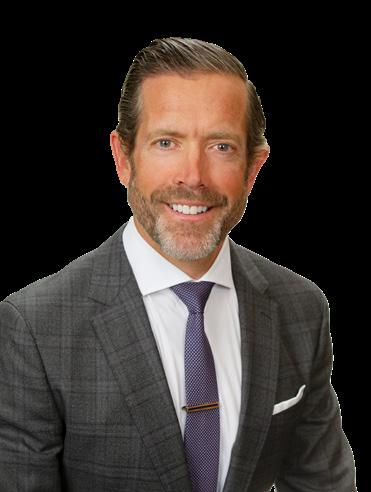
— Jeffrey A. Beaumont, Esq. Beaumont Tashjian
“There is great value in serving on the Law Journal Committee from collaborating with other professionals on topics for articles, having dedicated time to review and learn from the opinions and explanations of lawyers in our profession, and observing other writing styles. It has improved my writing abilities, as well as allowed me to learn different ways of viewing and explaining concepts. Serving on the committee also allows me to meet others in our profession and expand my network of colleagues, which is enjoyable personally and beneficial professionally.”
— John Hansen, Esq. Baydaline & Jacobsen


“I have been active on the Law Journal Committee since 2018. I originally got involved as a way to be active in the community and gain valuable experience. I love collaborating with others in the industry to create the Law Journal. I am continually learning and being challenged through the process of putting together the quarterly Law Journal. There is no better feeling than the pride of the finished journal after all the months of hard work to put it together! I am so thankful for the opportunity to be a part of this Committee.”
— Dyanne Peters, Esq. Tinnelly Law Group

“I have a passion for this industry and the people who choose to work with homeowner associations. It has been and continues to be a fascinating career and a wonderful opportunity to see it from the perspective of the legislative process. CACM has developed a robust committee including Wada Government Relations to guide us on laws coming down the way. Sitting with fellow colleagues who have the same level of interest and commitment is extremely fulfilling. One of the highlights was speaking before the state Senate on the quorum reduction bill – that was exciting. It is not often one gets the chance to step up and be part of a law that positively impacts our industry!”
— Lisa Triplett, CAMEx, CCAM
“Being on the Vision Magazine and Law Journal committees helps me to stay on top of industry trends and current laws impacting my association. Ultimately, I’m doing this to be the best manager that I can be.”
— Hamlet Vazquez, MCAM-HR, MBA


“While most of my writing these days focuses on the de-escalation of conflict, it is a pleasure to contribute positive and informative content for this magazine. I am an avid writer and was very excited to be able to support CACM and offer insight to other members of our industry.”
— Jeff Farnsworth, CAMEx, CCAM-PM.ND
“Working with Vision Magazine has been the most important part of me navigating this industry. Hearing what others are thinking and hammering through ideas with smart thoughtful professionals has been instrumental both for giving me a deeper understanding of the industry and for providing a paradigm from which to derive empathy.”
— Scott Swinton, CCIP
Provides input and feedback for development of CACM position and/or public policies on proposed legislation. The committee convenes once a month via a conference call format.
Members engage in all aspects of planning the annual Law Seminar & Expo. From brainstorming of topics for breakout sessions, to serving as committee liaisons between the CACM staff and session panels, their dedication ensures a most successful delivery of the industry’s premier event. The committee formally convenes monthly via a conference call format starting in the summer prior to each annual conference.




Members provide ideas, offer advice and support to help plan fun events and networking opportunities in the local regions. These committees serve both Northern and Southern California regions. If interested email, info@cacm.org.
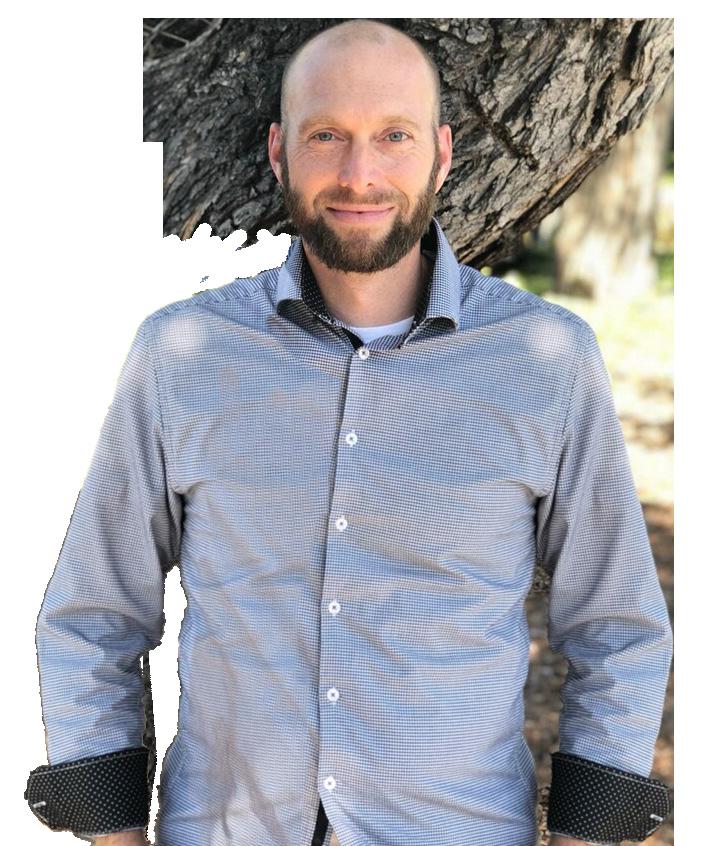


Helps shape editorial content and write articles for the only Californiaspecific industry trade publication, Vision magazine, that is published digitally four times per year. The committee convenes eight times per year via a conference call format.

Be at the pinnacle of success by earning the Master of Community Association Management (MCAM) certification.

David Scott, MCAM-LS
“The MCAM has fortified my self-confidence and my credibility with our board members. I believe it is also a source of satisfaction for our management company’s owners, who generously underwrote more than half of my investment in coursework, applications, travel to classes, etc. They believe strongly in supporting education. This is embedded in our company culture.”
Becoming an MCAM sends a powerful and prestigious message not only about your depth of experience, but also your commitment to higher education and your career. Individuals who undergo its rigorous requirements are taking responsibility to advance their own qualifications and elevate the broader community management profession.
Successfully complete the following courses within three years of applying*:
• Fundamentals of Effective Governance
• Human Resource Management
• Ethics Mastery
• Advanced Insurance Principles
• Risk Management
• Strategic Financial Planning
Submit the MCAM application and successfully complete a comprehensive assessment comprised of a 100-question multiple-choice exam, written paper and oral presentation.
*You must have held your CCAM for five years before applying.
serving your communities
CACM members further their success in the industry and benefit by partnering with colleagues to share new ideas and best practices. Please join us in welcoming these new members from the third quarter of 2024 (July 1 – September 30.)
1-800 Water Damage
Emeryville I (800) 928-3732 1800waterdamage.com
Advance Flooring Products (AFP) Benicia I (925) 207-0869 afpfloors.com
ATCO Pest Control
Petaluma I (415) 328-8189 http://atcopestcontrol.com
Condo Control
Toronto I (888) 762-6636 condocontrol.com
Kevin Davis Insurance Services, Inc.
Los Angeles I (213) 833-6191 kdisonline.com
Lawton Construction & Restoration, Inc.
Lincoln I (866) 990-5150 lawtoncr.com
MDC Builders, Inc.
Concord I (925) 427-2264 mdcbuildersinc.com
Platinum Security, Inc.
Los Angeles I (310) 207-1300 https://platinumsecurity.com
Smart Property Inc.
San Diego I (877) 864-8955 smartproperty.com
Third Party Voting
Escondido I (760) 385-8090 thirdpartyvoting.com
WebPerception, LLC
Novato I (415) 892-7711 https://webperception.com
Associated Janitorial Services, LLC Anaheim I (949) 414-3167
Banuelos Insurance Solutions
Orinda I (925) 258-1010 jbi-advisors.com
California Arbor Care Pomona I (877) 888-7337 calarbor.com
HOActa.app
San Clemente I (213) 286-1396 https://hoacta.app
LandGraphics
San Diego I (714) 909-7229 landgraphics.com
MC Contracting
Oceanside I (760) 433-7700 mc-contracting.com
Newman Windows & Doors Carlsbad I (760) 438-8080 newmanwindows.com
Norcal Private Protection, Inc.
Fairfield I (707) 315-2090 norcalprivatepro.com
Ocean Pavers Inc.
Aliso Viejo I (714) 293-2525 oceanpavers.com
PIA-SC Insurance Services Inc. Commerce I (240) 319-9519 piascins.com
Pilera Software, LLC
Nashua I (877) 974-5372 pilera.com
ProCare Tree Services
Signal Hill I (562) 656-3659 https://procaretreeservice.com
ProGuard Security Services, Inc.
San Francisco I (877) 469-0502 proguardsecurityservices.com
Rimkus
Irvine I (949) 745-5022 https://rimkus.com
Sprint Postal Products El Cajon I (619) 660-1956 sprintpostal.com
Stay Green, Inc.
Santa Clarita I (661) 291-2800 staygreen.com
West Coast Arborists, Inc.
Anaheim I (714) 991-1900 https://wcainc.com

By Scott Swinton, CCIP
If your day starts at 8 a.m. and ends at 5 p.m., then you’re one of the lucky ones. Just a few more phone calls or email messages, and next thing you know you’re microwaving a late dinner. Managing communities isn’t just about budgets, repainting and community pools, it involves managing relationships and expectations for thousands of people. You feel the weight of that responsibility, and it makes you a great manager, but it also wears you down!
You just powered through budget season. How did that feel? Rumor has it that budgets, special assessments and accounting audits each chop a few months off the end of your life. They probably do. If you’re not worn down, you know three people who are. In this article you’ll find ways to fight the fatigue, but first, let’s do a bit of cathartic venting…
The increasing regulatory demands on common interest development communities and significant social change over the past few years hasn’t been easy. The job really was simpler 15 years ago! SB-326 has had an immense impact on most managed communities. Few were funded for the collateral damage. Shifts in the insurance industry have also kicked the anthill for most communities – forcing many to make substantive and costly changes or risk cancellation. Then there were election law changes, solar power and electric car charger mandates, façade inspections and those pesky private sewer lateral inspections. None of those albatrosses had been hung about a manager’s neck in the early 2000s.
The job has never been easy, but it’s true that fewer elevators, balconies and pools were detonating 15 years ago. Social media also hadn’t fully saturated our way of life and complicated the human dynamic. And of course, the COVID-19 pandemic hadn’t driven half the population mad and turned the other half paranoid.
If it ever existed, the utopian past is relegated to memories, and the future can feel fraught. Is it time to hunker down pouting with our security blanket, a bowl of M&Ms and a Cary Grant movie?
If you think too long about it, a bowl of M&Ms and a movie actually become rather enticing, but pouting likely won’t help much. What may help are a few practical tips that can help you avoid burnout. The CID industry isn’t for the faint of heart, and when you do begin to feel faint, maybe some of the following will help.

Henry David Thoreau wrote in his journal on Aug 23, 1853, “For all Nature is doing her best each moment to make us well. She exists for no other end.” As an outdoor enthusiast, I couldn’t agree more. I keep a garden in my backyard. The blueberries and blackberries feed more birds, squirrels and purple-fingered seven-year-olds than I’d prefer, but it also helps my sanity. Watching for sprouts and buds in the spring and harvesting hidden potatoes in the fall is true catharsis. A walk down the sidewalk in the sun or rain can be equally rewarding. Taking a moment to see the sky and step through shadows may do more than increase vitamin D, it might make you feel just small enough to notice things with eternal importance.

Why are you doing what you are doing? You may say, “Because my job demands it,” or possibly, “My customers have certain expectations.” But is that REALLY why you are doing your job? Why do you work hard? I suspect it’s because deep down, you have a value system where hard work is a vehicle for accomplishing those values. You have passions, dreams, charitable causes and family relationships that all rely on you pressing ahead steadily with your work. Those passions, dreams and causes are all born out of your values. Those causes are why you press ahead.
Yes, your customers and your boss play a significant role in what your work consists of, but in truth, they are not why you are persevering at your work. You should excel at your work. But your job is a means to an end.
You are patient with a co-worker, why? Because it moves you closer to accomplishing the mission of your personal values. You put in a few extra hours, why? Because it aligns with the trajectory of your values. Don’t let your work or tasks become the end. Those are only the means to an end – an end where you are living up to the value system and the life mission you have established. If you remember this, then the daily grind begins to have a deeper meaning and may seem less tedious.

A bit of empathy will kick discontent in the teeth every time but, you do have to work for it. Are you frustrated that a hard-fought and wellplanned board meeting went embarrassingly poor? That’s natural. We want to ruminate on the bad actors who hurt our feelings, and that self-pity will hurt you every time. What might be helpful is to get out of your own head and think about what is driving those who frustrate you.
Acknowledge the plight of those angry board members and feel their frustration at not understanding – whatever it is they don’t understand. Think your way into the living room of that belligerent single mother who has been living in anxiety about the water stain growing under the living room window, while her baby wails in the other room. Or think your way into the dark kitchen of that owner who hasn’t had a job in three months, is already delinquent, and who just raged at your comment about a special assessment.
A few moments in that exercise can ground even the most jaded among us. We want empathy when we struggle. Surprisingly, giving it back can be just as effective.
4

TAKE A NAP DONATE YOUR TIME TO A GREAT CAUSE


A GOOD
Some people have a reading list a mile long. If that’s you, skip this paragraph because that list is one of your stressors. You need to go back to number one and get outside. But if it’s been a while since you read a book, get a recommendation from a friend, sit down for a few minutes each day, and read it.
Reading expands your horizons. Reading a good book should make you feel smaller and shift you out of the center of the universe. A good book not only places someone else as the protagonist of the narrative, but it can also give you ideas for navigating yours.
4 3
Personally, I recommend biographies of ordinary people who did extraordinary things. Shackleton, Teddy Roosevelt and MLK each have many books written about them which will make you think about your life from another radical perspective.
And the list goes on. There are countless ways to not only distract you from your workplace woes, but also give you tools to face the work with more aplomb. But in the end, the power is in your hands to pull out of your frustrations and look at your work and life through another lens. Your work, your coworkers and your clients certainly impact your life, but they don’t make you who you are. They also shouldn’t have the power to burn you out. Use these tips and come up with some of your own to battle the burnout. You got this!

Scott Swinton, CCIP, is the General Contractor and Certified Construction Manager at Unlimited Property Services, Inc. He has many years of lessons learned under his belt in the CID industry.
By Kelly Zibell, CCAM

Managing a community comes with a wide range of responsibilities including handling significant projects that require external vendors, such as construction, landscaping or amenities upgrades. As managers, we’re often expected to handle a variety of tasks with ease, which we usually do proficiently.
However, we’re not experts in construction or complex machinery or projects. To effectively manage these complex tasks, community managers often rely on experts they bring in to help assist with a project. These experts are usually found and hired through the request for proposal process also called RFPs. RFPs are formal documents used to solicit bids from qualified vendors, ensuring that a community gets the best value and service for its projects.
While RFPs are essential for managing these projects, they can be daunting for community managers who may not have the technical expertise to oversee such tasks effectively. The complexity of managing a large-scale project often exceeds the capacity of a community manager who must also handle daily responsibilities. Let’s discuss the best practices for handling RFPs and when seeking expert help is necessary for ensuring project success.
One of the most critical steps in the RFP process is drafting a detailed Scope of Work (SOW). The SOW outlines the specific tasks, deliverables and timelines for the project. A precise SOW ensures that potential vendors fully understand the community’s needs, helping them submit accurate and competitive proposals. Collaborating with board members, stakeholders, and even residents to clarify the project’s goals is essential.
The more detailed and specific the SOW, the better the proposals will align with your community’s expectations. Use construction managers, engineers or materials manufacturers to help develop your SOW to ensure it meets with industry standards and is the correct scope for the project. Hiring experts to help develop the SOW can be a cost-effective way to ensure accuracy from the start. An expert will ensure the SOW is technically sound, minimizing the risk of costly mistakes during the project. Real-life examples show that communities save both time and money by hiring experts upfront to set the project’s parameters properly.
Establishing a realistic timeline for the RFP process is another vital component. This includes setting deadlines for bid submissions, review periods, vendor selection, and project completion. Giving vendors adequate time to prepare their proposals will improve the quality of submissions.
Similarly, community managers must allocate time to thoroughly review bids prior to sharing them with the board. Giving an industry partner 48 hours to get you a proposal on a complex project is unrealistic and unfair to them. It often takes industry partners hours to complete a proposal package for you. Make sure you give them adequate time to complete and ask you questions if needed.

For a smooth and efficient RFP process, community managers must communicate clearly with potential vendors. This includes outlining the specific project requirements, performance expectations and evaluation criteria. Clear communication avoids misunderstandings, sets the right expectations and fosters trust between the community and vendors. Industry partners should know upfront how their proposals will be assessed and what benchmarks must be met for successful project completion. Failure to communicate clearly with partners could result in them not bidding on your next project!
A well-organized and transparent selection process is crucial for evaluating vendors fairly. Evaluations should focus on the vendors’ qualifications, prior work experience and the value of their proposals. Organizing an impartial committee to assess bids can help avoid conflicts of interest or biases in the selection process. Objectivity is essential to choosing the right vendor for your project and maintaining community trust.
WHEN THE RFP
BEYOND
While community managers are skilled in handling many responsibilities, some projects can be too complex to manage without additional expertise. Large-scale construction, infrastructure updates or utility projects often require technical knowledge that a community manager might not possess. When projects involve complex engineering, regulatory compliance, or substantial budgets, it’s essential to recognize that expert help may be needed.
Mismanaging an RFP for a complex project can lead to a variety of problems, including project delays, budget overruns, legal disputes and even safety hazards. Inadequate oversight can also lead to subpar work quality or vendor disputes, which could tarnish the community’s reputation and result in further costly repairs or corrections down the line.
A construction manager is a professional who specializes in overseeing complex projects from start to finish. An engineer or architect has specialized knowledge around building construction and reconstruction. Both differ from community managers in that they have specific expertise in construction, engineering and regulatory compliance. If your project involves structural assessments, large budgets or strict regulatory guidelines, it’s a sign that you should consider hiring a construction manager, engineer or architect. Oftentimes, you may hire a construction manager, who will bring in an architect or engineer to redesign a portion of the project or provide drawings for necessary permits.
Outsourcing the management of complex projects to specialized firms has several benefits. These experts bring efficiency, reduce risks and ensure legal compliance. By allowing a dedicated project manager to oversee the job, community managers can focus on their core responsibilities knowing that the project is in capable hands. Boards can also get legal protection by following the advice of the hired construction experts.
Convincing the board to allocate funds for expert assistance requires a solid presentation of the need. Highlight the potential risks including delays, cost overruns or legal liabilities if a project is mishandled. Showing the value that experts bring in preventing these issues can help justify the upfront expense. While hiring experts adds to the project’s cost, it often results in long-term savings. Mistakes made during project execution can be significantly more expensive than hiring qualified professionals. A clear cost-benefit analysis can help the board see the value of outsourcing or hiring experts.
Professional project management can align with the community’s long-term goals by enhancing property values, improving infrastructure, and increasing resident satisfaction. Communicating this broader vision can help persuade board members to invest in the right expertise for complex projects.
Managing the RFP process is crucial for the success of any community project. By following best practices and recognizing when a project requires expert help, community managers can ensure that projects are completed on time, within budget and to the highest standards. Balancing a manager’s daily responsibilities with seeking outside expertise is essential for complex projects, ultimately benefiting the community’s long-term growth and stability. The manager can continue to focus on the day-to-day operations of the community, ensuring no delays in responding to other vital community issues, while the expert ensures the construction project moves along smoothly.
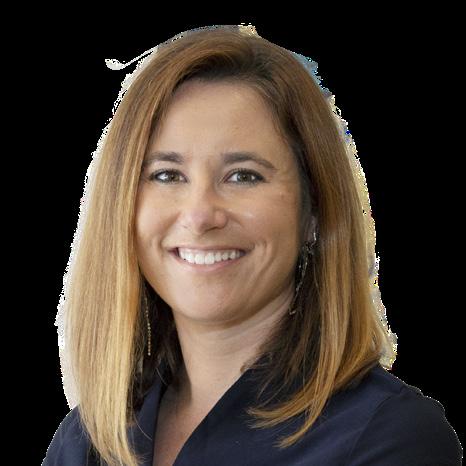
Kelly Zibell, CCAM, is the Senior Vice President of Community Management at Communitas. She is an experienced leader who’s held executive roles in prominent multinational HOA corporations.
Managers and industry partners alike reflect on 2024 and the year ahead.
By Celeste Huecias
As the air gets colder, the holidays roam around the corner and the year 2025 lurks in the distance, now is the time where many begin to reflect on the year they have had. With those reflections comes resolutions for the new year, resolutions that are always difficult to stick to.
Instead, these managers and industry partners took this as a time to reflect on 2024 and make some key goals and aspirations to drive themselves for 2025. Check out what they have to say:
A goal of my company (Third Party Voting) is to provide a seamless transition to electronic and hybrid voting for HOAs who want to be on the cutting edge of the industry in 2025. Personally, I aspire to be a reliable and trusted resource for all you managers who want to take the work and confusion of elections off your plate! I plan to attend various events throughout the year and look forward to helping in whatever way possible. I am looking forward to the SoCal Law Seminar & Expo. We’ll be at Booth 420 – come relax and get an in-person look at what electronic/hybrid voting will be like for your HOAs in 2025. A significant milestone of 2024 was welcoming my daughter, Ayla, into the world in March and joining CACM in September. A lesson I learned this past year is being proactive and leading with the right intentions for others will unlock amazing opportunities that will be realized both now and in the future.

I obtained my LSM with CAI and obtained two specialty designations ND and PM through CACM in 2024. My goal for 2025 is to continue to obtain more specialty designations and certifications with CACM. For 2025, I am looking forward to becoming a Nona (Grandma) and one lesson I learned this past year is that life is too short, take those vacations.

A significant goal I reached in 2024 was that I obtained my specialty designations for ND, LS, and AA. Some goals I have for 2025 are to receive my MCAM. An event that I am most looking forward to is the Northern California Law Seminar. And one lesson that I learned this past year was that there is no perfect management company, but I am happy at my current company.

Khani, CCAM-PM.LS.ND.AA.LM
My goals and aspirations for 2025 are to steadily grow my company by keeping my commitment to my clients, my staff and myself and to always remember what my CORE values are. Synergy is a strategic growth company. My focus for Synergy is to partner with clients that want to propel their associations forward. For 2025, I’m looking forward to the CACM Law Seminar. It’s one of my favorite events. Looking forward to hosting a special event for my current and prospective clients. My number one goal to reach in 2024 was to be able to stay in this industry doing the things I like to do and still provide my children with a mom that could attend their school events. Launching Synergy Management Group was the icing on the cake! I love working but I also love to be there for my children so being able to give myself that work-life balance has been one of my greatest accomplishments in 2024. A lesson I learned is take a risk on yourself! You never know what you’re capable of until you push yourself outside of your comfort zone.

Laura Hurtado, CCAM-PM.CI Synergy Management Group
My number one aspiration for 2025 includes meeting and connecting with more people in the industry. I’m looking forward to so many great events next year. I’m always excited for the holiday season, and as I reflect on the past year, I’m grateful for how far I’ve come since joining the industry last October. I’ve achieved several personal and professional milestones, including earning my CCIP, and I’ve gained so much knowledge in a short span of time. I’m eager to keep growing! One of the biggest lessons I’ve learned this past year is the importance of teamwork and collaboration – I give so much credit to my incredible Recon360 team, CACM and the hardworking managers I’ve had the pleasure of working with.

For 2025 my goal is striving to understand the best balance between technology and personal touch to best serve clients. With the rise of AI and national management companies, there is a change in the traditional management structure that has thrived over the past 30 years. Technology can offer great tools for managers and clients alike. However, not losing the personal touch, trust and care with clients remains the highest priority. If companies get too big or technology is leaned on too much, we may forget that our industry is in the service of people and their homes. I believe that no technology will ever serve clients better than one-on-one communication with staff that they trust. I feel that I learned a lot this year. Navigating clients through rough patches and unforeseen circumstances can be stressful but also quite rewarding. I also feel that I had a revelation this year. Which is that this industry is as much about taking care of people as it is about taking care of property. Sounds a bit cheesy – but I found it to be true.

CCAM
I will be the owner of the company I currently work for as of, January 1st. So, my 2024 goals became my 2025 aspirations. Our company has operated over the last 50 years with the same structure. My aspirations are to take that structure and redefine the foundations of the company with a flair of modern culture. You know…converting the paper into digital files. It was only 20 years ago our company converted out of DOS software. A significant goal from this past year is that our company took on a massive software upgrade into CINC Systems. This conversion worked out some muscles we were not using and created a unity in our office space to lean on one another a lot more than before. It took us out of our comfort and put us in a place of challenge through sweat and motivation, this was a true team-building effort. We are efficiently CINC’d up! One important lesson I learned is: It is ok to not say “yes” at every opportunity. I am a “yes” person and I have had to learn some hard lessons by overextending myself and becoming the anxiety character from Disney’s latest movie, Inside Out 2. In fact, our office all dressed up for Halloween and we played into each character! I learned that by me saying yes, I am only taking away from the person that really needs it to grow in places they have not experienced.

Thrive: My 2025 Theme. I’m focusing on building and growing together in 2025. It feels like the groundwork is laid, and now it’s time to flourish. I’ve learned the importance of listening to understand, not just to respond. Sometimes, being understood is better for professional connections. Next year, I’m excited to create spaces where colleagues and clients can thrive in healthy environments. I hope to influence more health and wellness events too.

“For 2025, I aim to deepen connections within our industry and spend more time with our industry family. I’m excited to help grow the CACM OC committee. Building relationships with new members is also a key goal for me. Personally, I want to enjoy more time outdoors and focus on activities that bring me happiness. For 2025, I am looking forward to Expo! I always look forward to this amazing event. This past year, I joined Whitestone Industries as the sales business development manager for Orange County. This role has been instrumental in my personal growth, allowing me to connect with industry leaders and expand my skill set. I am grateful to support Whitestone’s mission and make a positive impact in the industry. This year, I learned the importance of taking chances and always believing in myself. Embracing new opportunities has helped me grow personally and professionally, reinforcing that confidence and courage open doors to success.

“I’d like to get more involved in CACM in 2025! Coming into this industry two years ago as a total newbie, I’ve been getting my feet wet and putting all the pieces together. I’m excited to take on new challenges and forge some new territory! I really look forward to the Law Seminar in February! I love seeing the creative ideas of everyone come to life through their booth design and theme. It’s just a really fun time to go all out and engage with customers and potential customers in a lighthearted way. In 2024 I became a California Certified Industry Partner! I stepped out of my comfort zone in a couple different ways this year to take more ownership over my role and feel good about those endeavors. I learned sooooo many lessons in 2024. I think in a nutshell, kindness and respect goes a long way.



By Donna Vingo, CCIP
Insurance in California is in a crisis situation. Proper maintenance and planning can help keep your HOA insured. Community managers are generally not responsible for insurance or roofing issues, but they can be a “star” to their HOA boards by giving the boards clear and concise information and steps to take to avoid having an insurance cancellation and how to address deferred roof maintenance.
This article provides information to community managers to share with their HOA boards on how to give your HOA broker the information that is now required by insurance companies and underwriters to renew your HOA insurance. This is important because the HOA is a corporation that is required to have insurance coverage for its assets.
The current insurance crisis in California is due to many factors and includes California wildfires, rising supply costs, labor shortages and more. Allstate, State Farm and Farmers are exiting the
California insurance market. In many cases, they are not renewing policies, not writing new policies and State Farm Insurance recently announced that they will be canceling 72,000 existing policies in 2024.
Insurance companies are scrutinizing what they will write coverage for, and carriers are non-renewing policies they have written, and in some cases for years. Carriers also have the capacity to offer only limited insurance amounts.
Some insureds are being forced into nonstandard insurance markets, or surplus lines, which drives premium increases. There are several reasons that may affect you from getting coverage or even a quote for insurance. Things like, loss history, dangerous conditions (including old infrastructure), insurable amounts, open claims, lack of maintenance and
electrical panels (Zinsco, Federal Pacific, Stab-Lok and others).
With all of this information in mind, the next question is what options do HOAs have? A few next steps and options are to proactively resolve infrastructure issues to avoid non-renewal, comply with loss control recommendations, be proactive — do everything you can to avoid loss and preventative communication to members, don’t make smaller claims and think “where does association insurance end and HO-6/HO-3 begin.”
The most important thing for HOA boards to do now is to take a proactive approach. The insurance policies are not meant to cover necessary maintenance so deferred maintenance must be addressed NOW. Fannie Mae has updated form 1076 Condo Project Questionnaire to include questions about the HOA deferred maintenance or replacement items and what the schedule is for.
Q LOSS
Water intrusion is responsible for the majority of claims, the roof being a large part of preventing water intrusion.
Q DANGEROUS CONDITIONS
Older Infrastructure. Reroofing is frequently deferred because of the expense and the board not having the information they need to make an informed decision.
Q OPEN
Again, water intrusion is the greatest reason for claims with roof leaks being the reason for the claim. Educate homeowners on the difference of HO-3 and HO-6 insurance and get the open claims resolved as soon as possible.
Q LACK OF MAINTENANCE
Very few HOAs keep adequate maintenance records and insurance underwriters now require maintenance records if the roofs are approaching or at 20 years of age.
steps that HOA boards can take:

HOA IS A CORPORATION REQUIRED TO HAVE INSURANCE COVERAGE FOR ITS ASSETS.
Q REROOFING
A medium, 50-100+ condo HOA will take approximately three-to-five years from initial board decision to start the reroofing process through roof replacement completion.
Q REVIEW RESERVE BUDGET
If HOA roofs are approaching or older than 20 years some underwriters are now requiring a complete maintenance record and a schedule for when the roofs will be replaced. Review your reserve budget major components to determine age of the roof and expected life.
The California Department of Real Estate provides a table of expected life of roofs – asphalt, fiberglass composition and shingles are 20 years, and concrete, clay and metal are 35 years per the latest, 2015 Department of Real Estate table. Per the DRE, “Note: Projects over 10 years old are required to have a roof certification completed by a licensed roofing contractor. The certification should indicate the estimated remaining life of the roof and the cost to replace. A copy of the certification must be included with the Duplicate Budget Package (DBP).”
Q COLLECT ALL ROOF MAINTENANCE RECORDS FOR YOUR INSURANCE BROKER.
Q HAS THE BOARD DEFERRED ROOF MAINTENANCE OR REPLACEMENT?
Q HOA BOARD EDUCATION
Has the board received the necessary education on roof replacement products available today and the HOA reroofing process? Look for Example Project schedules showing the steps necessary for a condo HOA reroofing project. Board education materials should include expected life versus warranty, energy efficiency, return on investment for roof system, fire classification, earthquake safety, “green materials” etc. The writer of this article will be happy to provide a materials matrix for HOA boards (wink).
Q HAS A ROOF INSPECTION BEEN DONE?
Who should the board contact for a roof inspection?
Q CREATE A REALISTIC SCHEDULE
The board should create a realistic schedule for deferred roof maintenance and/or replacement.
Q DISCUSS WITH YOUR INSURANCE BROKER
Discuss with your insurance broker what type of HOA insurance will be needed for the different roofing materials.
Determine what type of fire area the community is in: wildlife urban interface, extremely high or high fire area per federal, state and local jurisdictions. Is the HOA in a flood area? Is the HOA in an earthquake zone?
Do not risk nonrenewal of your HOA insurance due to not having available roofing maintenance records or deferral of a reroofing project. If your roofing is approaching 20 years old or more, your insurance company will be asking for maintenance records and a schedule for reroofing.

Donna Vingo, CCIP, is a representative for Westlake Royal Roofing Solutions, a manufacturer of clay, concrete, composite and metal roofing products. She is passionate about education for community managers and HOA boards.
We’ve all been there dealing with unhappy homeowners, board members with agendas, and yes, the occasional call to rescue “Fluffy” from a tree. You’d think that after 35 years of serving homeowner communities, I’d have it all figured out. Spoiler
alert: I don’t. Some things just don’t add up, like why someone who buys into a homeowner’s association still doesn’t quite understand what that means.
By Mike Yarman, CCAM-LS.LM



Let’s start with a classic: the homeowner who gets all riled up about the parking rules and, with the confidence of a seasoned lawyer, declares, “I’m going to sue you!” I mean, sure, nothing says “neighborly love” like a good ol’ lawsuit. But here’s the kicker—do they not realize that suing the HOA is like suing themselves? It’s not like I’m sitting atop my HOA throne, twirling a mustache and cackling over parking violations. The HOA is a community. You’re mad at your neighbors, yourself and probably me for enforcing the very rules you agreed to when you moved in! But sure, go ahead, sue yourself. I’ll bring the popcorn.
Then there’s the “I have nothing better to do” homeowner. You know the type. They find a rogue weed in the common area, and instead of pulling it up—or, heaven forbid, calling the HOA manager—they call every county and city agency known to mankind. You’d think they were reporting an alien invasion the way they wield their phone. Next thing you know, a stern-faced inspector shows up, and the HOA gets hit with a fine. And guess who’s footing the bill? Not just the HOA, but every homeowner, including the person who made the call in the first place! It’s like shooting yourself in the foot and then demanding an apology from the bullet. Brilliant.
Oh, and let’s not forget the lawn-care drama. There’s always that one homeowner who insists their grass is “different” from the standard HOA-approved grass. So, when the landscapers come by and trim it, they go into a full-blown panic. I’m talking email campaigns to the board, town hall rants, the works. Their lawn is “ruined forever.” Forget climate change—this person’s lawn is the real emergency. The funny part? They don’t even use it. The lawn is more like a museum exhibit, complete with velvet ropes and an invisible “Do Not Touch” sign.


And then there’s the classic pet-in-peril situation. One day, I got a frantic call from a homeowner saying Fluffy, the cat, was stuck in a tree. No big deal, right? Except, the homeowner decided to join Fluffy in the tree to “help.” By the time I arrived, the fire department was on its way, and the entire HOA had gathered for the spectacle. Of course, both Fluffy and the owner got down just fine on their own, but not before turning it into the HOA’s version of “Cirque du Soleil.”
Honestly, after 35 years, I’m still scratching my head at some of these situations. But there’s something about the unpredictability, the absurdity, and yes, even the lawsuits, that makes us stick around. It’s not just the challenge—it’s because being a community manager is more than a job. CACM managers care, and we love what we do. We take the time to understand the personalities in our associations. Each day, we wear different hats: mediator one day, therapist the next and occasionally even physicist (don’t ask).
Being a community manager is a commitment. The hours are long, and the pay- well, let’s just say you’re not doing it for the money. But in the end, it’s the feeling that you’ve made a difference. Whether it’s helping keep the peace, solving a problem or, heck, even just making someone’s grass a little greener.
After all, someone’s got to do it, and for some strange reason, we love being that someone.

Mike Yarman, CCAM-LS.LM became a CCAM in 1997 and has been working in the industry for even longer. He’s the general manager and COO of Rinconada Hills Association in Los Gatos.





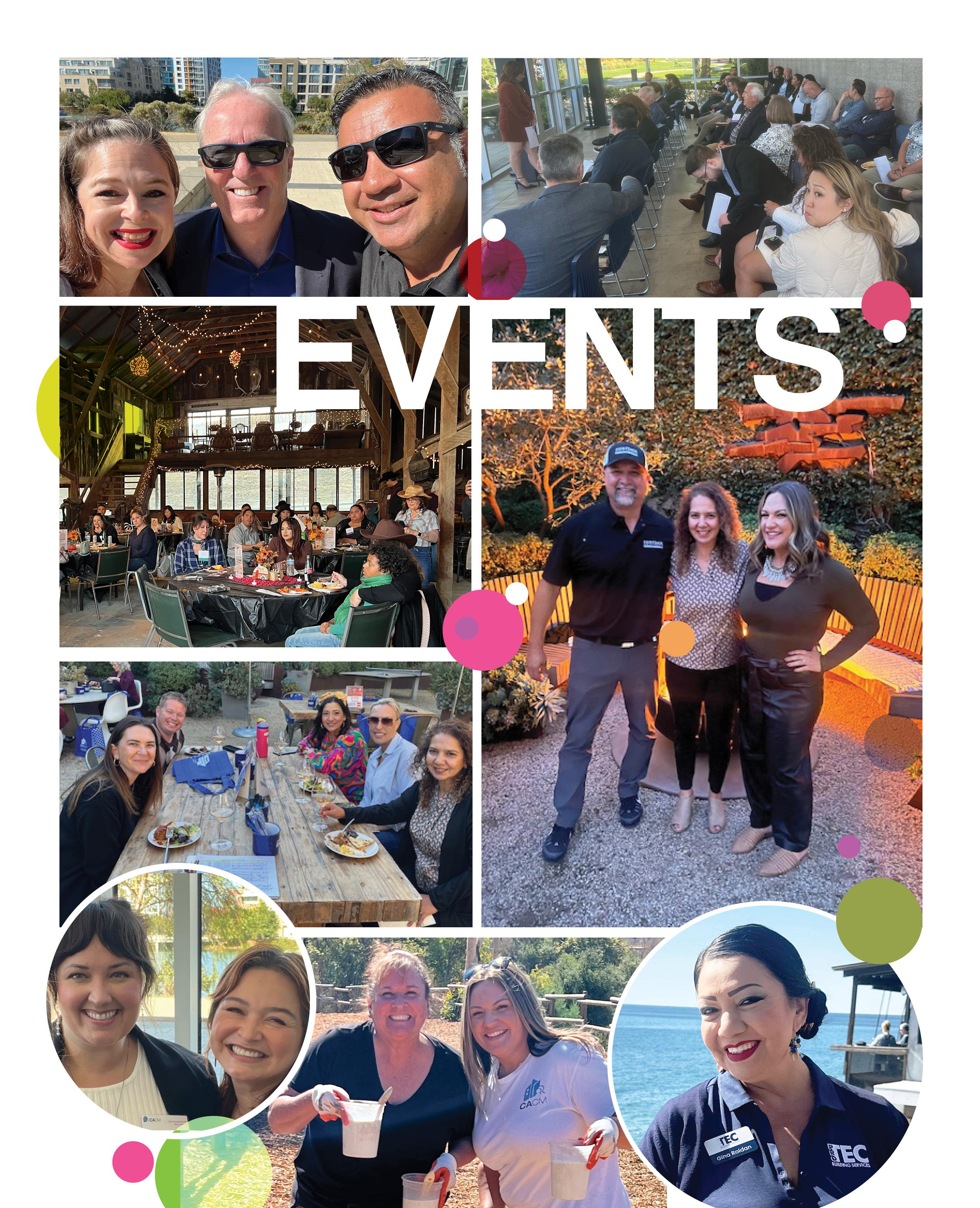
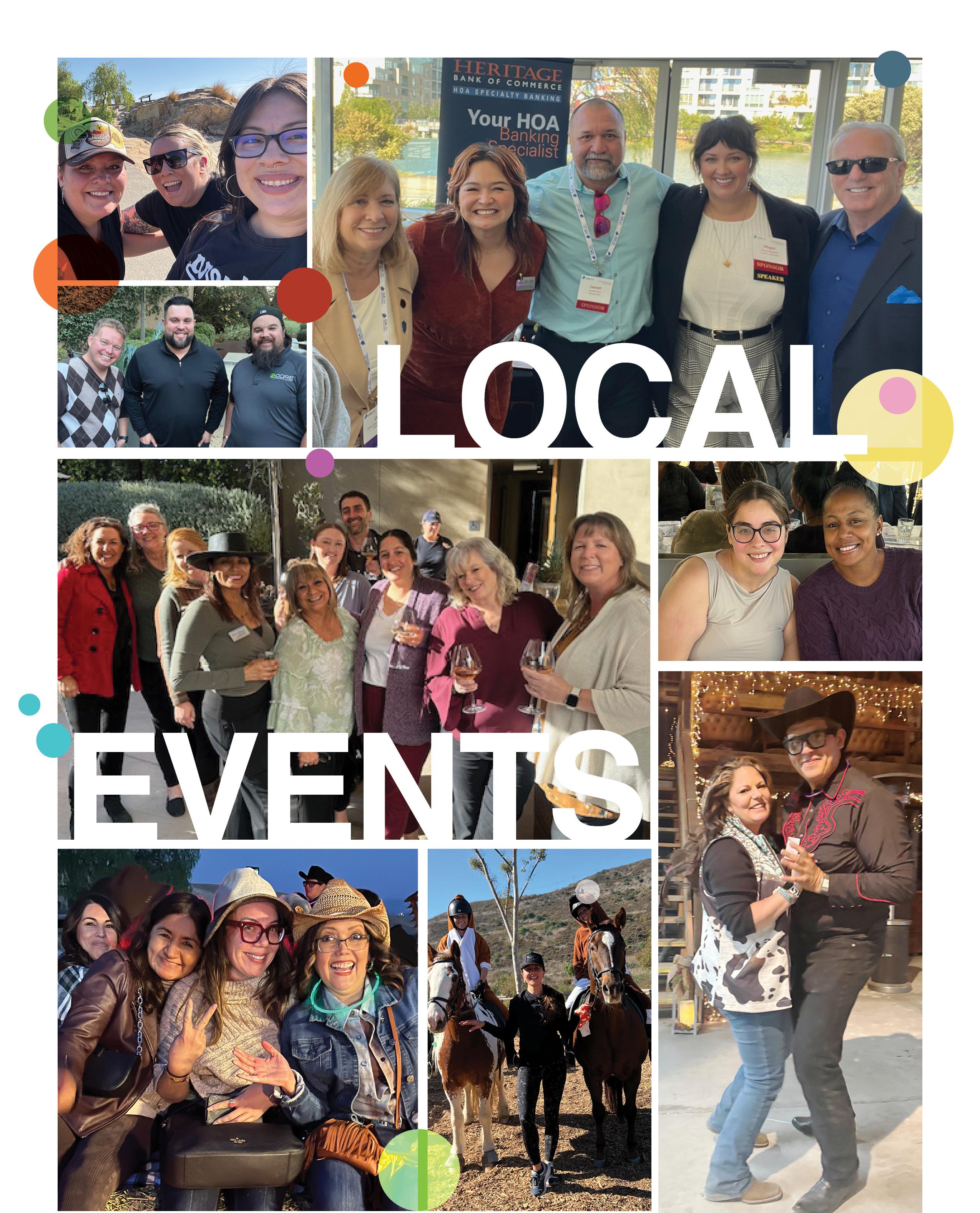
Thanks to our sponsors for the first quarter of 2024 (July 1 - September 30) for their generous contributions. The next time you encounter a CACM Sponsor, please join us in acknowledging the work and generosity of these supportive members.
A Plus Tree, LLC
Advance Construction Technology, Inc. (ACT)
Aeroscopic Environmental Inc
Alerus Commercial Banking
Alliance Association Bank
Allied Universal Security Services
Angius & Terry, LLP
Antis Roofing & Waterproofing
Association Reserves
AWT Construction Group, Inc.
Axis Construction
Beach Cities Roofing
Berding I Weil LLP
Bergeman Group Construction Management
BluSky Restoration Contractors
Brown & Brown
Browning Reserve Group
Cagwin & Dorward Landscape Contractors
CalPro Construction & Painting
CAM Property Services
Cedar Construction Management
Chapman & Intrieri, LLP
CID Consortium LLC, ACMC
Citadel Roofing & Solar
CM2 & Associates, Inc.
DC Construction Management
Earthco Commercial Landscape
Empireworks Reconstruction
Enterprise Bank
Executive Coatings & Contracting

Fenton Grant Kaneda & Litt, LLP
First Citizens Bank
First National Bank of Omaha (FNBO)
Flanagan Law, APC
Gale Force Property Maintenance, Inc.
Great Scott Tree Care
The Greenspan Co./ Adjusters International
Harvest Landscape Enterprises, Inc.
Heritage Bank of Commerce
HOA Invest
HUB International Insurance Services
Hughes Gill Cochrane Tinetti, PC
J.J. Commercial Water Heaters
JGB Restoration
JPA Landscape & Construction, Inc.
LandGraphics
Life Specialty Coatings
MasterCare Protection & Cleaning, Inc.
McKowski’s Maintenance Systems, Inc
The Miller Law Firm
MindMe Technology, Inc.
Mission Landscape Companies Inc.
MPS Financial, LLC
Nautilus Reconstruction, Contracting & Consulting
Nextier Insurance Services, Inc.
NorCal Private Protection
O’Connell Landscape Maintenance
Pacific Green Landscape, Inc.
Park West Landscape Management
PCW Contracting Services
Pilot Painting & Construction
Pinnacle Financial Partners
Platinum Security, Inc.
Precision Construction and Painting
Precision Landscape Solutions
Prendiville Insurance Agency
Pro-Tech Painting Company
ProTec Building Services
R&S Overhead Doors of So-Cal
Recon 360, LLC
Richardson l Ober
Riley Pasek Canty, LLP
Roofworks & Construction, Inc.
Roseman Law, APC
Saarman Contruction, Ltd.
Sax Insurance Agency
ServiceFirst Restoration, Inc.
ServPro Team Brogdon
Sherwin-Williams
Storm Water Innovative Solutions
Strategic Reserves
Tarc Construction
Trace Restoration and Construction
Tree Pros, Inc.
Urban Painting, Inc.

Valley National Bank
Varsity Painting
Villa Park Landscape, Inc.
Westlake Royal Roofing Solutions
Whitestone Industries
Whit’s Painting, Inc.
CCIP: HOA CORE PRINCIPLES
Zoom CIP 100
Session 1 of 5
January 7
8:00 AM - 10:00 AM
Session 2 of 5
January 14
8:00 AM - 10:00 AM
Session 3 of 5
January 21
8:00 AM - 10:00 AM
REGISTER
Session 4 of 5
January 28
8:00 AM - 10:00 AM
Session 5 of 5
February 11 8:00 AM - 10:00 AM
BASICS OF ASSOCIATION MANAGEMENT (BAM)
Zoom
Session 1 of 8 CMM 101
January 7
9:00 AM - 11:00 AM
Session 2 of 8 CMM 101
January 8
9:00 AM - 11:00 AM
Session 3 of 8 CMM 101
January 14
9:00 AM - 11:00 AM
Session 4 of 8 CMM 101
January 15
9:00 AM - 11:00 AM
REGISTER
CALIFORNIA LAW
Zoom
Session 1 of 8 CMM 121
January 7
1:00 PM - 3:00 PM
Session 2 of 8
January 8
1:00 PM - 3:00 PM
Session 3 of 8 CMM 122
January 14
1:00 PM - 3:00 PM
Session 4 of 8
January 15
1:00 PM - 3:00 PM
REGISTER
FOUNDATIONAL ETHICS
Zoom
Session 1 of 2
January 9
9:00 AM - 11:00 AM
REGISTER
ADVANCED ETHICS
Session 2 of 2
CMM 130
January 9 1:00 PM - 3:00 PM
Zoom LDR 500
Session 1 of 2
January 16
9:00 AM - 11:00 AM
REGISTER
ETHICS MASTERY
Zoom
Session 5 of 8 CMM 102
January 21
9:00 AM - 11:00 AM
Session 6 of 8 CMM 102
January 22 9:00 AM - 11:00 AM
Session 7 of 8 CMM 102
January 28 9:00 AM - 11:00 AM
Session 8 of 8 CMM 102
January 29 9:00 AM - 11:00 AM
Session 1 of 2
January 23
9:00 AM - 11:00 AM
REGISTER
Session 2 of 2
January 16 1:00 PM - 3:00 PM
ADVANCED ETHICSNORCAL LAW SEMINAR In-Person LDR 500
One session only
February 5
12:30 PM - 4:30 PM
REGISTER
CALIFORNIA LAW
Zoom
Session 1 of 8 CMM 121
February 11
9:00 AM - 11:00 AM
Session 2 of 8
February 12 9:00 AM - 11:00 AM
LDR 550
Session 2 of 2
January 23 1:00 PM - 3:00 PM
FOUNDATIONAL ETHICS
Zoom
Session 1 of 2
January 30
9:00 AM - 11:00 AM
REGISTER
Session 5 of 8 CMM 123
January 21
1:00 PM - 3:00 PM
Session 6 of 8
January 22 1:00 PM - 3:00 PM
Session 7 of 8 CMM 124
January 28 1:00 PM - 3:00 PM
Session 8 of 8
January 29 1:00 PM - 3:00 PM
Session 3 of 8 CMM 122 February 18 9:00 AM - 11:00 AM
Session 4 of 8
February 19 9:00 AM - 11:00 AM
Session 5 of 8 CMM 123
February 25
9:00 AM - 11:00 AM
Session 6 of 8
February 26 9:00 AM - 11:00 AM
Session 7 of 8 CMM 124
March 4 9:00 AM - 11:00 AM
Session 8 of 8
March 5 9:00 AM - 11:00 AM
CMM 130
Session 2 of 2 January 30 1:00 PM - 3:00 PM
ETHICS MASTERYNORCAL LAW SEMINAR 1 In-Person LDR 550
One session only February 5
12:30 PM - 4:30 PM
REGISTER
THE BASICS OF ASSOCIATION MANAGEMENT
Zoom
Session 1 of 8 CMM 101 February 11 1:00 PM - 3:00 PM
Session 5 of 8 CMM 102 February 25 1:00 PM - 3:00 PM
Session 2 of 8 February 12 1:00 PM - 3:00 PM
Session 3 of 8 February 18 1:00 PM - 3:00 PM
Session 4 of 8
February 19 1:00 PM - 3:00 PM
REGISTER
Session 6 of 8 February 26 1:00 PM - 3:00 PM
Session 7 of 8 March 4 1:00 PM - 3:00 PM
Session 8 of 8
March 5 1:00 PM - 3:00 PM
All educational courses are held on Zoom except when indicated. Please contact a member of the Education Department for further details and schedule. Click on courses below to register
One session only
February 13
9:00 AM - 12:00 PM INSURANCE PRINCIPLES
Zoom INS 200 REGISTER
CCIP: ENHANCE YOUR PROFESSIONAL PRESENCE
Zoom CIP 200
Session 1 of 2
February 18
8:00 AM - 10:00 AM
REGISTER
BUDGETING
Session 2 of 2 February 25 8:00 AM - 10:00 AM
One session only
March 12
12:30 PM - 4:30 PM ETHICS MASTERYSoCal LAW SEMINAR 1 In-Person LDR 550
REGISTER
In-Person
One session only
March 12 12:30 PM - 4:30 PM ADVANCED ETHICSSOCAL LAW SEMINAR
REGISTER
Zoom FIN 300
Session 1 of 2
February 20
9:00 AM - 11:00 AM
REGISTER
Session 2 of 2 February 27 9:00 AM - 11:00 AM
CONFLICT RESOLUTION
Zoom CMM 220
Session 1 of 2
February 20
1:00 PM - 3:00 PM
REGISTER
One session only
March 6
Session 2 of 2 February 27 1:00 PM - 3:00 PM
9:00 AM - 12:30 PM ADVANCED INSURANCE PRINCIPLES
Zoom INS 300 REGISTER
HUMAN RESOURCE MANAGEMENT
Zoom LDR 400
Session 1 of 3
March 20
9:00 AM - 11:30 AM
Session 2 of 3
March 27
9:00 AM - 11:30 AM
REGISTER
LDR 500
STRATEGIC FINANCIAL PLANNING
Zoom FIN 320
Session 1 of 2
March 18
9:00 AM - 11:00 AM
REGISTER
Session 3 of 3
April 3
9:00 AM - 11:30 AM
CCIP: FOUNDATIONAL ETHICS
Zoom
Session 1 of 2
March 25
8:00 AM - 10:00 AM
REGISTER
Session 2 of 2
March 19 9:00 AM - 11:00 AM
COMMERCIAL & INDUSTRIAL CID MANAGEMENT
Zoom
Session 1 of 3
March 19
1:00 PM - 3:00 PM
Session 2 of 3
March 26 1:00 PM - 3:00 PM
REGISTER
CIP 300
Session 2 of 2
April 1 8:00 AM - 10:00 AM
ENHANCE YOUR PROFESSIONAL PRESENCE
Zoom
Session 1 of 2
March 25 2025
1:00 PM - 3:00 PM
REGISTER
SPC 450
Session 3 of 3 April 2 1:00 PM - 3:00 PM
CMM 200
Session 2 of 2
April 1 2025 1:00 PM - 3:00 PM
THE BASICS OF ASSOCIATION MANAGEMENT
Zoom
Session 1 of 8 CMM 101
March 25
9:00 AM - 11:00 AM
Session 2 of 8
March 26
9:00 AM - 11:00 AM
Session 3 of 8
April 1
9:00 AM - 11:00 AM
Session 4 of 8
April 2 9:00 AM - 11:00 AM
REGISTER
Session 5 of 8 CMM 102
April 8 9:00 AM - 11:00 AM
Session 6 of 8
April 9 9:00 AM - 11:00 AM
Session 7 of 8
April 15
9:00 AM - 11:00 AM
Session 8 of 8
April 16
9:00 AM - 11:00 AM
Please Note:
